1 editorial poetry crossword
contemporary
interview fiction
2 saturdaʏ 15.10.2022 the doon school weekly established in 1936 issue no. 2655
In the process of creating the Founder’s Day issue of the Weekly, we have incurred debts to certain individuals who we must now thank. For the efforts put into this issue extend beyond the work done by the Editorial Board.
First, Ms Abia Qezilbash, for her assistance in helping us curate content published under the section, ‘From the Archives’ and for providing us with pictures credited to The Doon School Archives.
Mr Vijay Prashad for his time and wonderful insights.
Lastly, Uddhav Goel and Aryaveer Agarwal, for their help with the interview with Mr Vijay Prashad: to them, particular thanks.
[ Arthur Foot ]
3
“I SKETCH YOUR WORLD EXACTLY AS IT GOES” WILL, I HOPE, BE THE MOTTO OF THE DOON SCHOOL WEEKLY
.
MAY IT AVOID THE
SCYLLA
OF
DULLNESS
AND THE
CHARYBDIS
OF
BAD TASTE, AND SET FORTH ON A LONG AND HONOURED CAREER.
Acknowledgements
4 11 13 15 17 18 19 10 12 14 16 019contemporary 048fiction An Ode to Chandbagh The Four Walls A Technological Reckoning All the World's a Plate In Pursuit of Writers Seeking a Greater Nation On Loneliness Public Health in India Hegel, Music, and the Civil Rights Movement From the Archives 020 024 029 032 022 026 030 034 036 039 22 24 21 23 25 The Round Table A Reversal of Fortune Within Time of Death One With the Tide 049 052 058 050 057 007editorial 02 01 03 Many Deaths Disappearing Constants The Confessions of a Pseudo-intellectual 07 012 09 013poetry 05 07 04 06 08 A Poet's Plight Brutal Harvest Hyacinth's Field Ephemeral Summers La Rencontre de Soi 013 014 016 014 015 09 Black Princess 016 20 An Interview with Mr Vijay Prashad 044
Editor-in-Chief
Armaan Rathi
Ahan Jayakumar Saatvik Anand Shreyan Mittal Vihan Ranka
Abhay Jain Tarun Doss Vinesh Uniyal Yashovat Nandan
Arav Khanal Arjun Prakash Neel Sahai Vivaan Sood Zubin Dhar
Ganadhipati Aryan Harshil Makin Krish Agrawal Pragyan Goel
Devender Mishra Moulee Goswami Purnima Dutta
Kamal Ahuja Kritika Jugran
5
Publisher Technical Support Editor Senior Editors Faculty Advisors Associate Editors Correspondents Special Correspondents
For more than eighty years, the Weekly has reported all the important day-to-day events of The Doon School, and, at the same time, it has provided Doscos with an outlet for their literary genius, promoting the ideals of penmanship. The Weekly has become the face of debate and discourse within the walls of Chandbagh and has channelled the thoughts of Masters and Students, becoming a pillar of support to our institution, filling every Saturday morning with lively discussion across dining tables, and frantic struggles for issues.
This Founder’s, the Weekly moved away from the more traditional coloured edition to a modern avant garde issue, highlighted with pops of colour and a more minimalistic aesthetic. It features several commentaries, as well as critiques, that serve to decipher and analyse a plethora of topics, from the experiences of a food writer, to the American Civil Rights Movement. Moreover, captivating pieces of fiction and poetry attempt to bend genres, and reflect the authors’ self and their journey as they explore the limits of their creativity.
This issue also showcases numerous reprints from The Doon School Archives, portraying the School’s past, and especially of the Weekly (some of which you may read with the benefit of hindsight). The images and paintings have been mindfully paired with each article to induce a deeper thought in the reader's mind, providing a vivid perspective on each piece.
We sincerely hope that you thoroughly enjoy reading this edition of the Weekly and look forward to receiving feedback from you.
Happy reading!
The Editorial Board, The Doon School Weekly
A Note on the Issue 6
Many Deaths
editorial armaan rathi
Death of the Reader
The Reader is dead. The Reader remains dead. And we have killed him.
The School community does not read the way it used to. This is a commonly witnessed epidemic, one that has perhaps even plagued you. We have stagnated; regressed as a community in our ability to possess and seek knowledge. All the while, we consume information and media in ever-increasing quantities. We must be fed this information in concise, episodic morsels, nothing too detailed so as to not choke ourselves. Surfacelevel information is a common delicacy amongst most parts of the community. The internet is the cornerstone of this intellectual fiasco and patient zero of this epidemic. It has incapacitated you and I to seek knowledge patiently, and devoid us of the pleasure of seeking knowledge, instead, it has satiated us with mere snatches of information; just enough to keep us entertained and hooked and blind. As a result, we crave to consume media; without it we are simply incomplete, hollow even. Books are artefacts. We do not talk of them, much less open them. We now lack the patience to read books. Books have become too slow for us and are now out of fashion. The library is a mausoleum. It is now a mere remnant of a community that used to take pride in its ability to think extraordinarily, deeply, and extensively, and most importantly to think for itself.
Death of the Writer
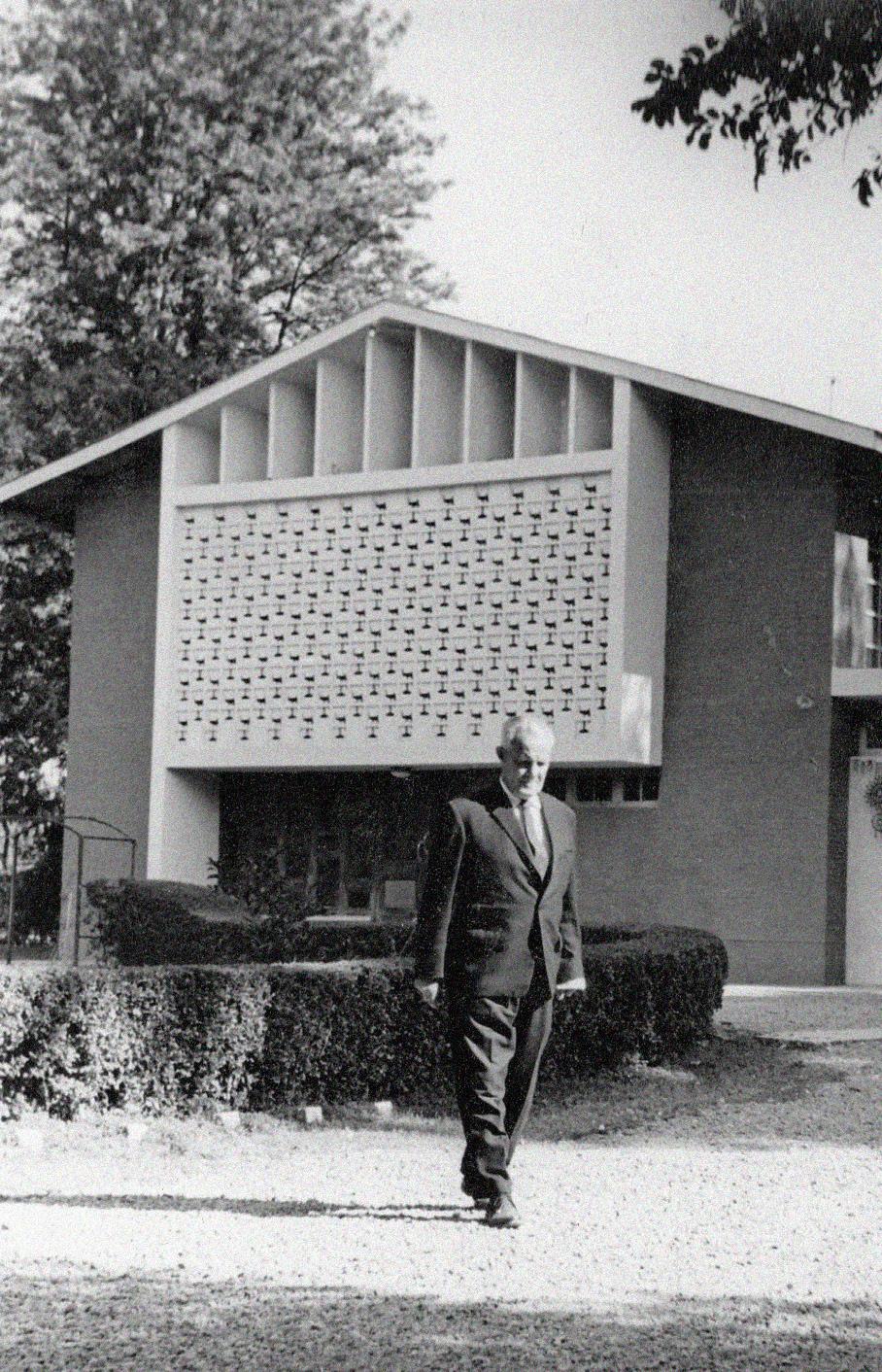
The Writer is dead. The Writer remains dead. And the Reader’s death killed him.
The School community does not write the way it used to. A while ago, during my early years in School, writing thoughtfully, and writing in general was a common and prized skill; a prerequisite even. We were capable of writing that was engaging and personal. We were motivated enough to write about things that affected us and the community around us because of this mutually-shared belief that writing mattered, and that writing anything in itself was gratifying. This is simply not the case today. The few surviving writers need to be wooed and coaxed into submitting anything, and when they do finally submit something, it lacks substance and personality. This notion that we ourselves do not care enough about what we are writing is at the heart of this malady. Evidence of this is also in the dwindling number of contributions to the Weekly and other School publications. The bygone motivation to write stemmed primarily from the fact that we were readers first, and what we read was moving enough to make us write. In that lies the opening maxim: the Reader’s death killed the Writer. We do not read the way we used to, in turn, we do not think the way we used to, and as a result, we cannot write the way we used to.

Death of the Publication
The Publication is dead. The Publication remains dead. And the Reader and the Writer jointly killed it.
As you can guess, and to echo what I had written in my maiden editorial, any publication in School functions as a result of the dyad of the Reader and the Writer. It is a symbiotic and obligatory relationship, and the result of such a relationship is a successful publication, magazine or journal. The Publication depends on collaborative effort. Now that both, the Reader and the Writer are dead, the Publication too is a corpse, a shell of its former self. Most School publications have reduced their length significantly. What was once a forty-page, bi-annual magazine is now a twenty-page annual release with a very evident demise in the quality of writing.
This is an extreme and quite unpalatable diagnosis; death often is. It is one that disheartens me enormously and one that is born from part frustration and part helplessness. Yet, in spite of all this, I still believe that we’re capable of remedying our pitiful state.
The idea, after all, is to be capable of thinking creatively and critically, and to be culturally aware and appreciative amidst all the clamour.
I.7 auditorium
from The Doon School Archives
Continued on the next page.
Resurrection, Remedy, Antidote, and Elegy
In order to stage a resurrection of the Publication, first, we must remedy the situation of the Writer and the Reader. The only way to do that is to seek knowledge appropriately. To that end, we must read quality fiction, non-fiction, and newspapers. We must digest information in a bid to retain it, from books first and then the internet. Furthermore, we must read for pleasure and in an attempt to fulfil an intellectual hunger that resides in all of us.
We must write. Cliched as it may seem, but as members of the School community we are presented with ample opportunities to write. We must grasp these opportunities, and we must do this with regularity. In addition to the preceding thought, we should write primarily for our own selves, for there is an immense and fundamental reward in creation, through writing or otherwise. The idea, after all, is to be capable of thinking creatively and critically, and to be culturally aware and appreciative amidst all the clamour. I urge you to consume this antidote without reservation.
A Parting Note
Conventionally Founder’s Editorials talk about the Weekly and the Editor’s experiences with the Weekly. To this, I have little to add, and I do not wish to be sentimental. However, I must take this opportunity to acknowledge certain individuals who I have treasured over my years as a member of the Editorial Board. First, I am immensely thankful to my Juniors for working diligently, for living up the demanding expectations that come with the Weekly, and for bearing my frequent bouts of tyranny. Second, I am grateful to my fellow Senior Editorial Board members for supporting me relentlessly. To Ahan, for driving me to do more; to do better. To him, particular thanks. I must thank MGI Ma’am for her invaluable inputs and insights. Lastly, I owe much to PDT Ma’am, under whose guidance and kind counsel the Weekly and myself have grown tremendously. To those that I have failed to mention, I owe more than I can repay in words.
The Weekly has been the sole and towering constant of my adolescence and time at Doon. The Sisyphean nature of the work it entails has taught me to find reward in toil and to cherish the austere faculty of thought, week in and week out. The Weekly’s legacy has been one of clarity, intellect, and steely consistency, to have been its temporary custodian has been my privilege.
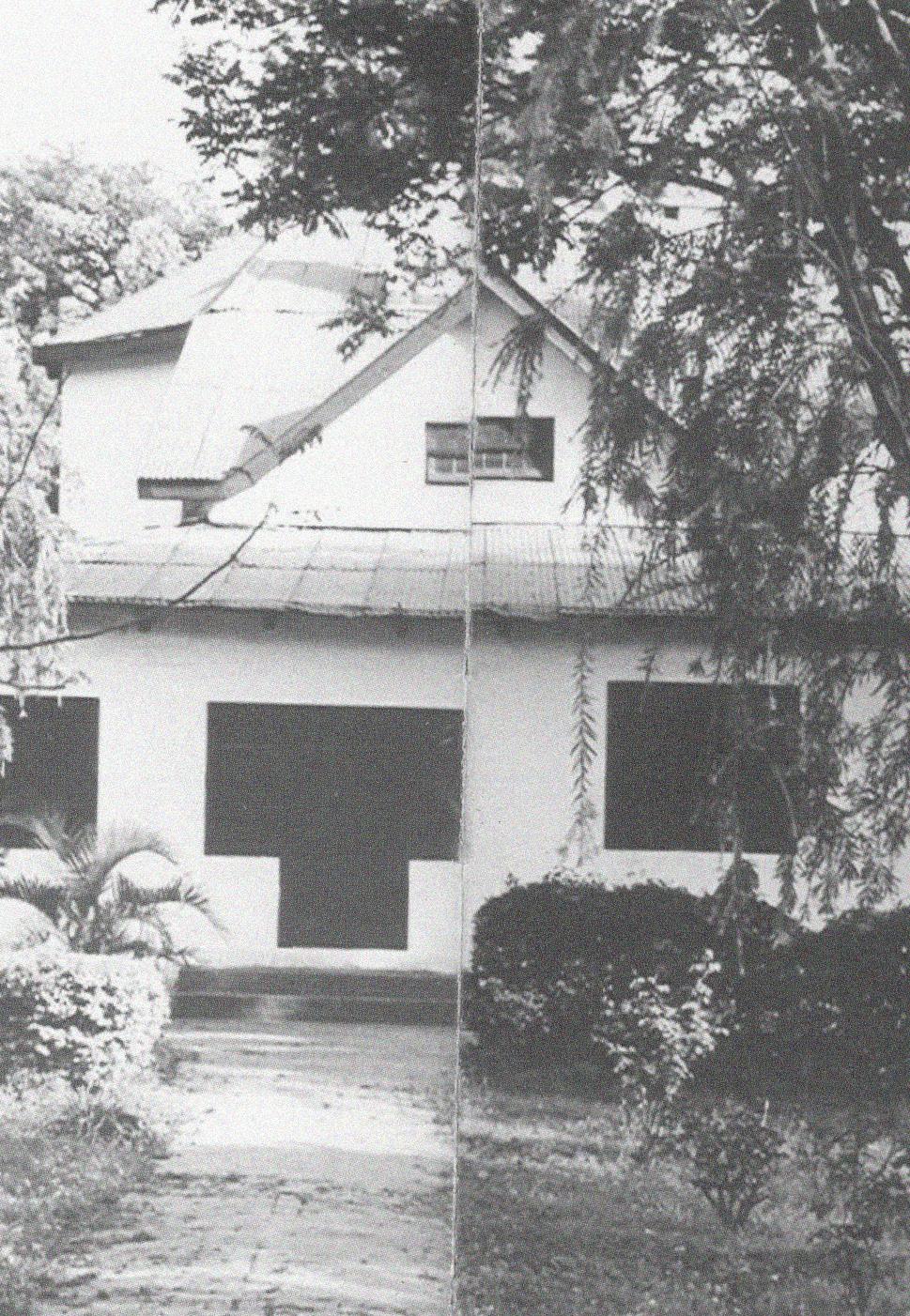
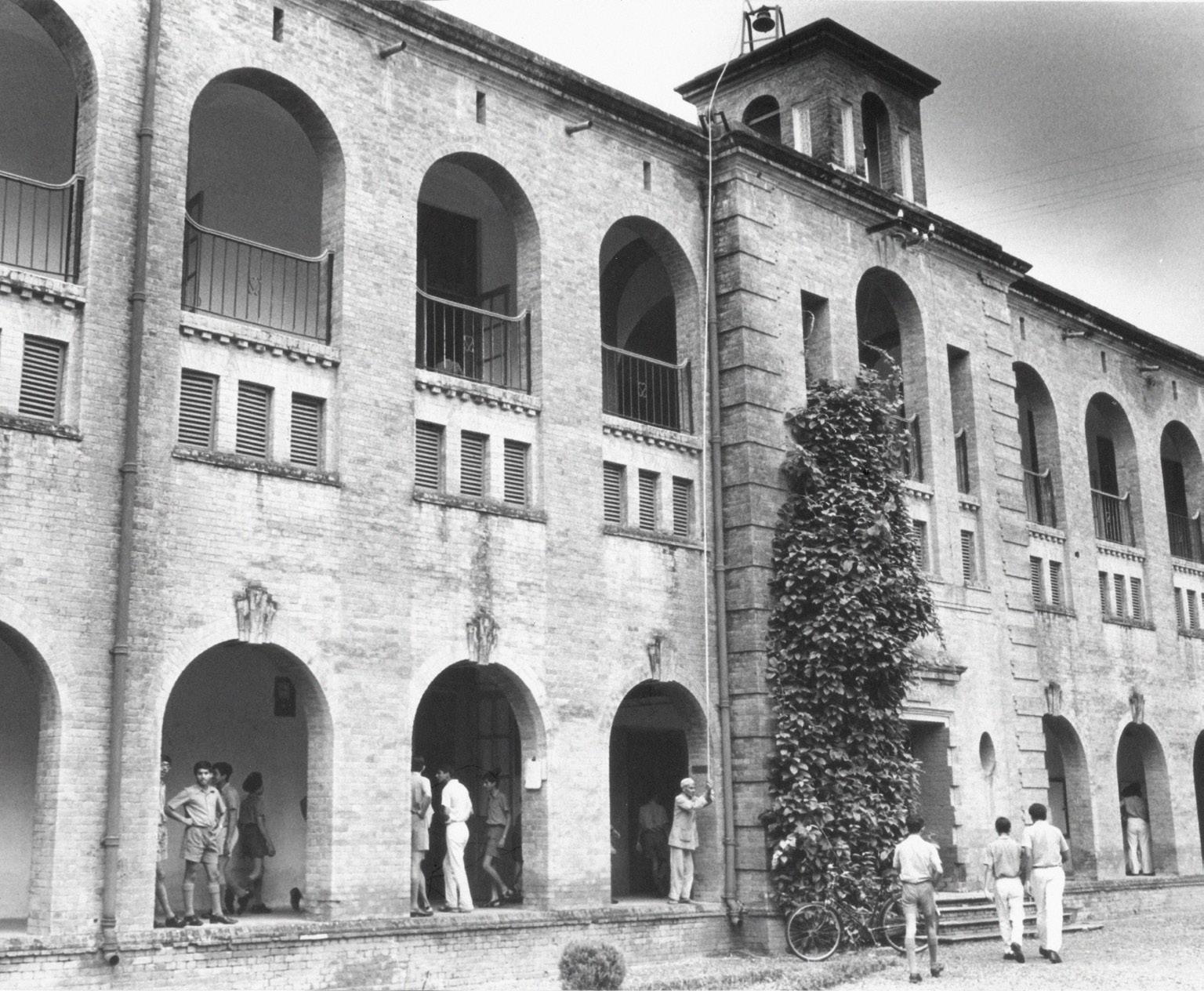
editorial continued from the previous page 8
jaipur housemaster's residence from The Doon School Archives
main building from The Doon School Archives
The Confessions of a Pseudo-intellectual
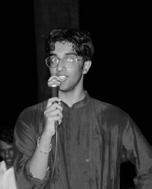 editorial ahan jayakumar
editorial ahan jayakumar
I vividly recall the day I joined School: for some reason that week, the Weekly was being distributed at dinner and I was one of the lucky few to have received a copy. The person distributing it happened to be an old friend, and thus arose an intrigue within me. I grew fascinated with this otherwise insignificant piece of paper and began devouring its content. I began to ask around about the publication and its relevance, and by the end of the meal, finally got an idea of what exactly I had just experienced. As I walked out of the CDH, I happened to glance at the Weekly meeting happening outside the Kashmir House entrance, and it was at that moment, I developed this drive within me to make myself a part of this institution. I was mesmerised by the allure of being a part of a collective like the Weekly
My journey on the Board has now reached its inevitable conclusion, which is something I have not yet mentally prepared myself for. As I come to this realisation (a couple of days post my deadline of submission), I am now provoked to reminisce and look back at my journey on the Board. I feel an immense affection for this publication, something rather unconventional, and thus as an obligation to all it has done for me, I will now attempt to do it some justice.
What, Why
To the layman, the Weekly is, as stated before, just an ordinary, otherwise insignificant piece of paper. However, this could not be further from the truth. Agreed, it is the six pages one receives at Saturday breakfast; however, this happens to be an entirely superficial perspective that I must correct. The Weekly is a culmination, it is an exhibition of the effort of some twenty-odd individuals, each of whom shares the same affection for the publication. Beyond that, the Weekly in its own way sets the tone for the School: it captures the nuances of the week and presents it in a way that is easy for one to digest. This is, of course, entirely in addition to the already stressed upon: being that it is a platform for Doscos to express themselves, and so on and so forth.
Having said this point, I’d like to have a brief caveat to address a new matter. Beyond the typical elitist tag that the Weekly is known for, I am now learning of a new sentiment arising, in that it is solely members of the Board who get printed. Dear reader, this is not because of an inherent bias, or not to ensure that quality is maintained. This is by and large, a product of the lack of reader engagement. As has been repeatedly mentioned, there is a dearth of interaction between the publication and its audience: the level of contribution has been reduced, for no logical reason. The proliferation of internet access in School has led to an increase in the access to information. This would logically prompt more writers, which doesn’t appear to be the case. I fear I may go into a separate tangent if I proceed with this thought any further, so I will conclude by misquoting Uncle Sam, as my predecessors did: “I want you to write”.
Why then does the Weekly come out every Saturday? To put it simply, it is because of tradition. We have been told that the Weekly must come out on Saturday, and thus we as the Board must function accordingly. However, this again is highly superficial. To answer this question aptly, I believe you must bear with me for a bit longer as I attempt to answer this very question next.
Who
The last page of the issue bears a list of names, something most people tend to overlook since it is standard. Yet for those individuals on the Board, that little grey box is a symbol of pride. While it may only capture their names, this again is entirely superficial. The little grey box is representative of that very affection for this publication I had mentioned above. To many people out there, it may seem like the Weekly is a very selective publication, elitist almost, reserved for only the English-speaking nobility and a few Hindi scholars. This is true to
Continued on the next page.
II.9 While
I could not explain this to myself when on my first night in School, I now understand why
I
was drawn so strongly to this publication.
editorial ahan jayakumar
a certain extent, and while it oddly bothers me to say this, but that is a requirement to be on the Board: it isn’t for anyone and everyone. However, this very policy is also applicable elsewhere. Proficiency in languages is just a pass that gets you through the doors, it doesn’t ensure you stay in. To be on the Editorial Board, one must have a certain affection for the work they are made to do. This affection is shown via traits like consistency, efficiency, creativity, cooperation et cetera. This again is not for anyone and everyone, which is something most readers fail to realise. The Editorial Board consists of a group of individuals who match the two criteria above, and because they share these similarities, they become a tightly-knit collective, a fraternity if I may. As a result of the intermingling of the factors mentioned above, the Board pushes itself to produce those very six pages that circulate themselves across the School community on Saturday mornings.
While I could not explain this to myself on my first night in School, I now understand why I was drawn so strongly to this publication.
How
If one were to ask me what my journey would have been like if not for the Weekly, they would receive the following answer:
I fear I would remain in obscurity, whiling away my time in School. The Weekly gave me a sense of purpose, for I felt a certain belonging to the publication, to the people of the publication, and to the people of the School who read the publication. Everything I did had to be perfect because I could not tolerate the thought of letting down any of these parties. If it weren’t for the fear my first Editor-in-Chief, Ansh Raj, had instilled in me, I would not be anywhere near the person I am today. It was that fear that drove me to push myself above and beyond and improve not only my writing and my work ethic, but myself as a whole. Additionally, if it weren’t for the competition I had mentally created between Armaan and myself during our joint time on the Board, I wouldn’t have pushed myself as much as I did. I attribute part of whatever affection I have for the publication to primarily these two individuals, without whom I now cannot fathom my journey on the Board of the Weekly.
The end
As the time to pass the baton on to the next Senior Board approaches, I must now look back and say that in my final year on the Board, I fear I have not contributed nearly as much as I would have liked to. I wasn’t able to become the role model to the Junior Board members I had aspired to be, (regardless of the position, many of my friends pull my leg for). I believe I have not fully met my obligation to this publication I claim to love so much for which I humbly apologise.
For a lack of space, I must now conclude this piece. I conclude not with the discomfort of sadness, but rather with the warmth of resolve. I believe I have just the quote to capture the sentiment I find myself experiencing right now. It is from the book The Little Prince.
“But on this last morning, all these familiar tasks seemed very precious to him. And when he watered the flower, and prepared to place her under the shelter of her glass globe, he realised that he was very close to tears.”
editorial continued from the previous
page 10
The Editorial Board consists of a group of individuals who match the two criterias above, and because they share these similarities, they become a tightly knit collective, a fraternity if I may.
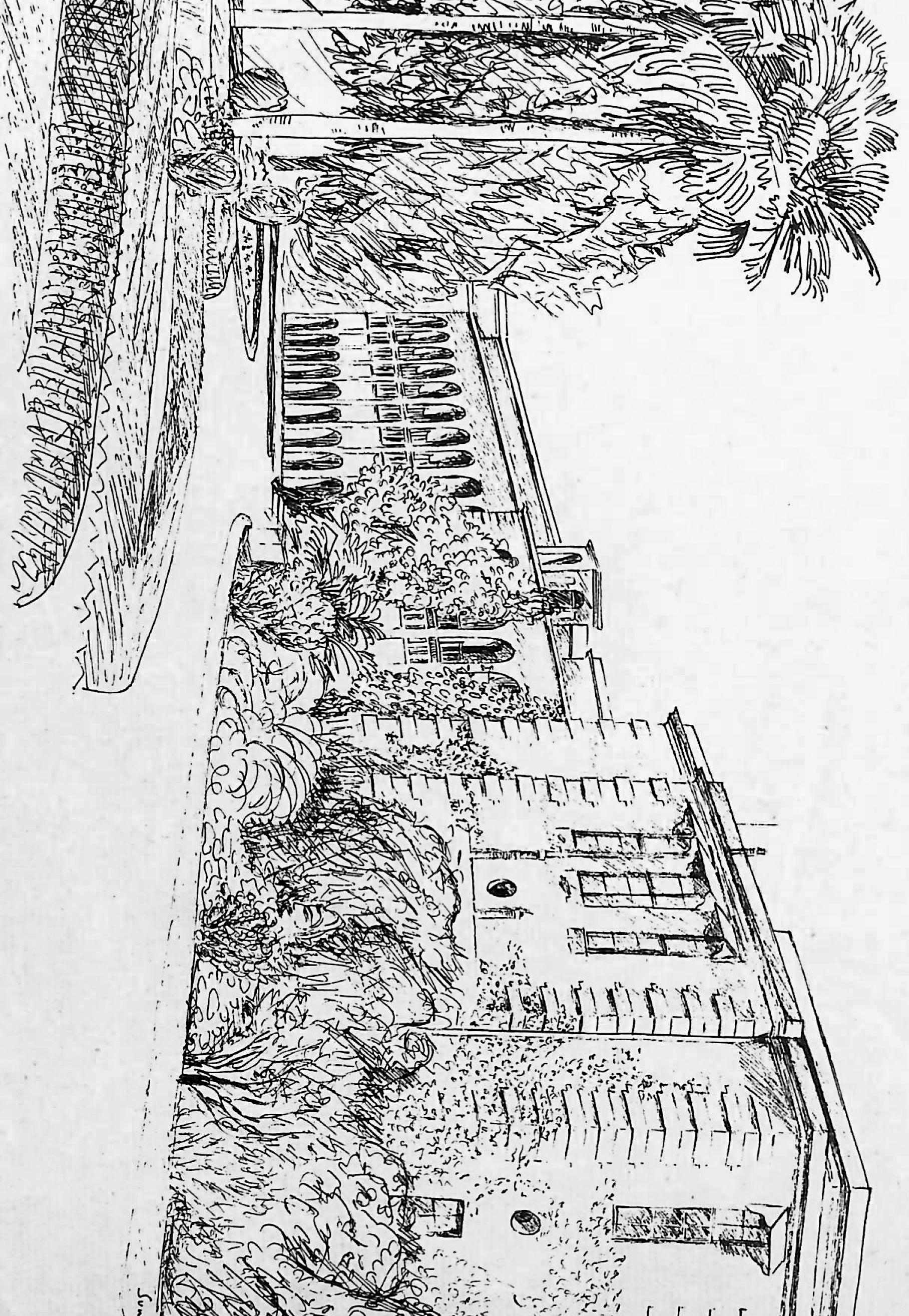
From The Doon School Archives
Chronicle your best and worst moments in School; chronicle strife and ecstasy, all in equal measure. Pick up writing, it helps.
Disappearing Constants
editorial vihan ranka
Saturday mornings are marked by the arrival of the weekend and the Weekly
The black and white pages of this publication have been a constant for a rather sizeable portion of my School-life, and as I write this Editorial, I am realising that soon, along with a myriad of other things, these constants will disappear from my life.

I tried getting onto the Weekly’s Editorial Board numerous times, finally succeeding by the end of my B Form. Like a new initiate, I was eager to learn the ways of the Weekly, however to my dismay, and everyone else’s, we were promptly sent home due to the Pandemic. The entirety of my years on the Board were spent online, meaning I had a contrasting experience when compared with almost every other member of past Boards of the Weekly. However, the essence of the Weekly remained the same: the constant time crunches, struggling to encourage my form-mates to write articles from the comfort of their homes, and proofreading issues at odd hours to ensure that every Saturday, an online version of the Weekly was enjoyed and read by the entire School community.
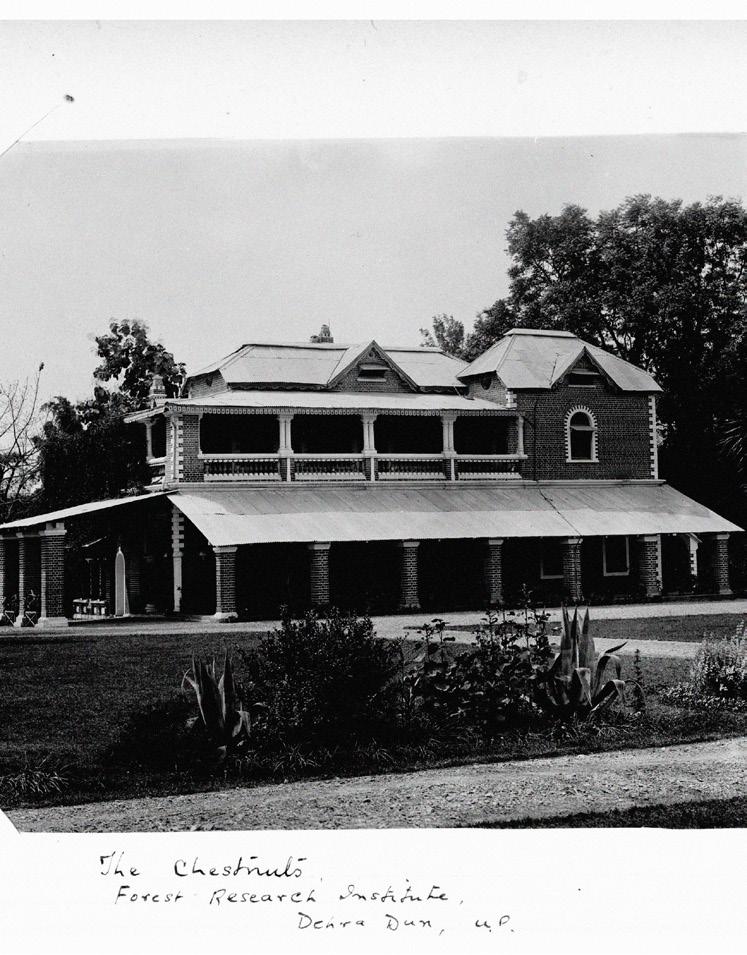
As an Sc Former on the Board, I can be proud of the several things I have achieved and learnt from the entire ordeal of being a Junior member of the Board. On the other hand, there is a major question which dangles over my head. “What if the Pandemic hadn’t forced the Weekly online?” Without a doubt, I have contemplated the other possibility in the two-forked path which I undertook in my B, A and S Forms. There are a lot of skills I would have developed, a lot of experiences I would have under my belt, and a plethora of memories I could have made with my batchmates on the Board. However, there is not a single shred of regret that I harbour, and rightfully so. From Varen, my very first Editor-in-Chief, who helped my writing skills blossom, to Armaan, the current Editor-in-Chief, for being a constant source of inspiration and a great friend.
The little wisdom that I would like to impart goes as follows: some Doscos have lived lives that make biographers jealous. Chronicle your best and worst moments in School; chronicle strife and ecstasy, all in equal measure. Pick up writing, it helps.
III.12
chestnut house from The Doon School Archives
A Poet’s Plight
Fragments of thought occupy my cell, The alarming screech at the sound of a bell. Soda, sirens and a shot of rum, For my ideas disappear like the stone in the well.
My life is no more than the words that I spell, So I cast my wand through the dreams that I sell. Cloth, canvas and a palette of potential, Yet my ideas disappear like the stone in the well.
The walls, they talk to me, pale and alone, A restless insomniac with a voiceless tone. Loud in my laughter, silent in my suffering, For I preach with my thoughts and the thirst that I own.
Clarity disgusts me, so I read between the lines, Trying to dig meaning, From the meaninglessness of life. With the knowledge that I seek and the answers I cannot find, I rest my pen, an ink for criticism, to die at war with rhyme.
 -Arjun Prakash
-Arjun Prakash
13 Poetry from 13—16
self portrait with cropped hair a painting by Frida Kahlo
Ephemeral Summers
October dreams, Fading dreams, In a dream of a dream maybe we’ll meet Where reality and fantasy join, there’ll be a seam.
Ephemeral summer, like a fairy Blinking in and out of sight, would you grant me this, Please make this not-so-scary, Give me the strength to fulfil my wish.
-Yash Adalti
Brutal Harvest
I see an apple tree with fruit that teases you, suspended: polished and bright.
In the wintry air, I’m assuming you’d want a bite. at least I do.
I see the apples, sun-ripened and promising and supple.
they’re futures, yours and mine. and they sing sweeter than sirens luring all, men and swines.
I pick one and bite its taut skin. now, we’re in the long-run
I figure, I must pick another for you and then one more for me.
I reach out and wrap my fingers, about to pull but the fruits melt and the futures burn
meanwhile, the branch quietly cuts my palm. If you were here with me, I’d ask you, as I apply the bloody sutures, what are we going to do with all this future?
-Armaan Rathi
14
La Rencontre de Soi
La Rencontre de Soi
Dans les ruelles labyrinthiques du mémoire, je me lance dans un périple.
Je me dirige dans le noir, d’un pas tremblant.
Dans les ruelles labyrinthiques du mémoire, je me lance dans un périple. Je me dirige dans le noir, d’un pas tremblant.
Au fond, dans les coins, je rencontre des gens ici et là,
certains dont je me souviens du présent, certains ont pâli et se sont évanouis.
Au milieu de la foule, Un visage apparait de temps en temps, quelqu'un que j'ai su toute ma vie.
Au fond, dans les coins, je rencontre des gens ici et là, certains dont je me souviens du présent, certains ont pâli et se sont évanouis. Au milieu de la foule, Un visage apparait de temps en temps, quelqu'un que j'ai su toute ma vie.
Je lui souris.
Je lui souris.
Elle me sourit en retour.
Elle me sourit en retour.
Nous nous ressemblons beaucoup pourtant nous le savons que nous ne sommes pas pareilles.
Nous nous ressemblons beaucoup pourtant nous le savons que nous ne sommes pas pareilles.
English Translation of La Rencontre de Soi.
English Translation of La Rencontre de Soi
A Rendezvous
A Rendezvous
In the labyrinthine alleys of memory, I embark upon a journey.
I head in the dark, a little unsteadily, Deep in the corners, I meet people here and there, some I recollect from the present, some have paled and faded away. Amidst the crowd,
A face recurs every now and then. Someone
I have known all my life.
I smile at her she smiles back.
We resemble a lot yet we know, we are not the same.
In the labyrinthine alleys of memory, I embark upon a journey. I head in the dark, a little unsteadily, Deep in the corners, I meet people here and there, some I recollect from the present, some have paled and faded away. Amidst the crowd, A face recurs every now and then. Someone I have known all my life. I smile at her she smiles back. We resemble a lot yet we know, we are not the same.
-Ms Mughda Pandey
-Ms Mugdha Pandey
15
15
15
Hyacinth's Field
A face so pale and washed against the drowning hyacinth field, taunting the rain-soaked earth with spilled ambrosia and salty teardrops leaking from within.
The Sun burnt his Muse in stark and starry passion. Payment for sunrise lyre lessons and olive branch kisses. Debts paid for with the whistling wind and a broken discus.
A crown of gold so bright it blinded Hyacinthus' judgement. And adoration so gentle it blinded Apollo's very senses.
-Yashovat Nandan
Black Princess
Grey faces on the news, their skin colour gets to choose the narrative that the world proves. For all they see is black and white, thinking in black and white.
Now, I start to wonder how many riots will it take, till black lives really matter? Like a bee, beelining to the window, in hopes of an escape from the room.
Now, I start to wonder how many chants will it take, until the girl child is finally saved, The bee crashes against the window pane, the relentless pain of a trapped insect, stuck within the mindset of the masses.
if heavy is the head that wears the crown, heavier is the womb that bears the princess.
-Maharshi Roy
16
Across Down
1. The famous American actress, Katharine ________, holds the record for most number of Oscar wins.
2. This famous British singer, who was also a part of the Beatles, was assassinated at the age of.
3. This is the only number which cannot be represented by Roman numerals.
6. This scientist accidentally discovered the first true antibiotic.
9. This ancient Indian Kingdom was based in Magadha.
10. The national animal of Scotland.
12. The Author of The Great Gatsby and The Curious Case of Benjamin Button.
13. Better late than ___ !
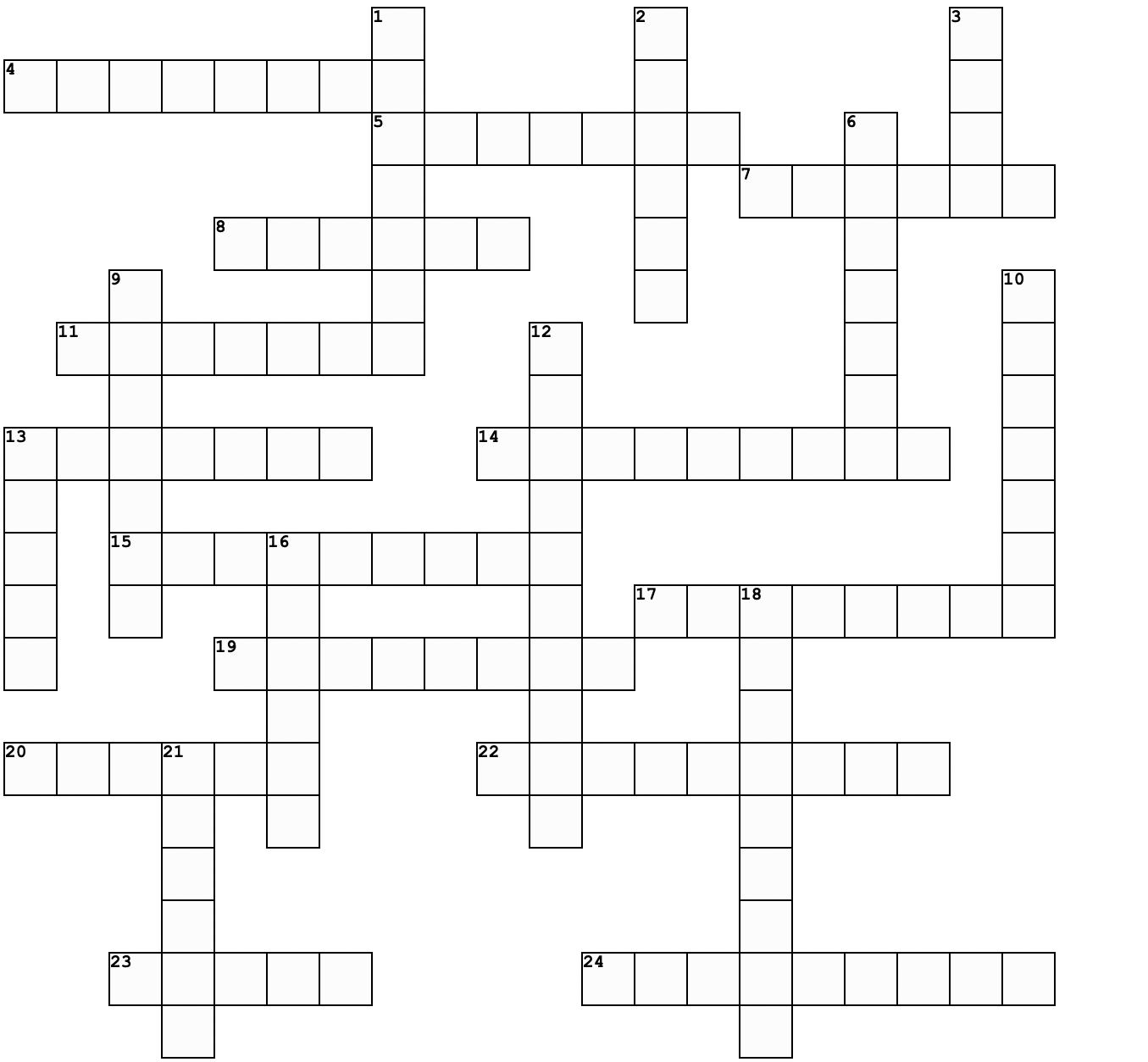
16. The shortest bone in the human body.
18. The last Soviet leader.
21. The Italian word that describes all kinds of icecream.
4. A term used to describe the state or situation of being alone.
5. The only person to have won two unshared Nobel Prizes.
7. The U.S. President responsible for suggesting the idea of the League of Nations after World War I.
8. A term to describe something very small; a unit of time.
11. The first man to reach the deepest natural point on Earth alone.
13. The author of Malgudi Days
14. _______ is the study of the origin of words.
15. This famous cyclist was stripped of all seven of his Tour de France titles after being found guilty of doping.
17. The first explorer to organise an expedition to circumnavigate the globe.
19. The capital of Australia.
20. The strongest muscle in the body.
22. The longest reigning British monarch, who recently passed away.
23. An alloy consisting of iron and carbon.
24. This Indian city is home to the biggest cricket stadium in the world.
Crossword17 answers overleaf
Answers
18
to the Crossword Down 4.Solitude 5.Pauling 7.Wilson 8.Minute 11.Cameron 13.Narayan 14.Etymology 15.Armstrong 17.Magellan 19.Canberra 20.Tongue Across 1.Hepburn 2.Lennon 3.Zero 6.Fleming 9.Mauryan 10.Unicorn 12.Fitzgerald 13.Never 16.Stapes 18.Gorbachev 21.Gelato 22.Elizabeth 23.Steel 24.Ahmedabad

from 20—47 contemporary school . opinion . economy . culture . science
An Ode to Chandbagh
For the past 87 years, our School has prided itself on being an institution that allows boys to lead, make decisions, and, of course, serve one another and the School. A Dosco is exposed to this culture of School all the way down in D Form when he attends his first STA or holds a hockey stick for the first time on the field. Regardless of the activity or sport, there will always be a Senior during an activity or on the field to guide and pass on the basic etiquette and discipline of what the Junior is looking to explore. As a Junior develops an interest in the STA or sport of his choice, it becomes a part of his routine to engage with his interest and is something that stays with him throughout his time in School.
In my opinion, the challenges arise in the life of a Dosco when it is his turn to pass on these learnings, traditions, and the very culture of School in his final year, when he is given the privilege to lead his activity or sport of interest. The way I look at it is that these positions are given to those who suit the expectation of leading and to those who pass on the values and expectations that come with the activity or sport. Whether it be in terms of how calm one might be while explaining something or even how strict one might be when a Junior is not up to the mark, we have been observed from the very first day that we set foot in School.
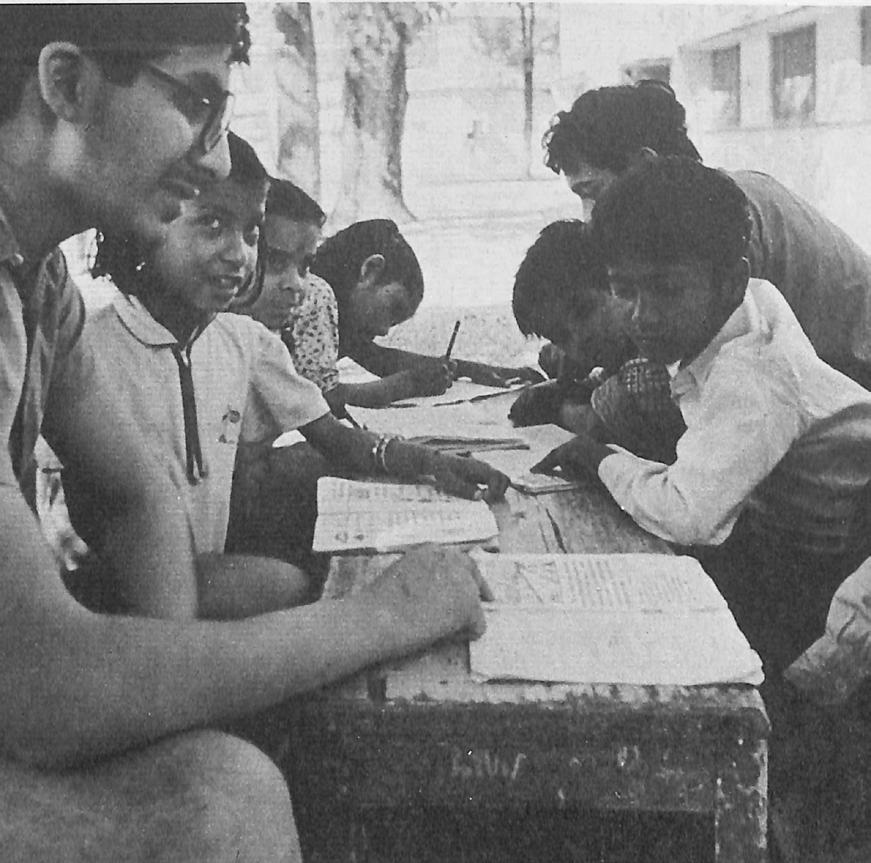
Of course, one does not have to be given these positions of leadership to lead. This challenge poses problems to anyone who wishes to leave a benchmark and a legacy to live up to in the times to come. A Dosco may question himself at this final stage of his life in School and may be anxious about living up to, or even trying to exceed the expectations set by Masters and previous Boys-in-Charge, Captains, or even a Senior whom he may have looked up to in his time at School. Unfortunately, due to the Pandemic, there was an unprecedented void in the passing of learning and culture to the incoming batches, who had only been to School online. This was an added pressure on the now Senior batches, whose responsibility it became to interact with Juniors and try and pass down the aforementioned through an online medium. The online mode did have its limitations, as without having experienced the physical environment of School, a Junior listening to his Senior talking about a campus he has never been to, would sound superficial.
To take a personal example, I started playing the sitar in D Form, and since it was a decision that I alone had made for myself, I would go to the Music School and practise as often as I could. After a few days of practice, a Senior (who was the Orchestra Leader at the time) walked into the room I was in and said, "I have been hearing you for a while and what you’re playing could be better. Try playing slower and gradually build speed." Unfortunately, instances and interactions such as these could naturally not arise with incoming Juniors for a sizeable amount of time due to the Pandemic. Due to these unfortunate circumstances, they have lost out somewhere on the formative learning of a Dosco, which makes it the responsibility of the Senior batches to make up for their own and, that of their Juniors, because these Juniors are the future of School, who will one day be the Senior-most batch with something to pass on. To be candid, if I had not gotten that
school veer nigam an account of the paradigm shift that the school is witnessing.
Continued on the next page. 20 social service from The Doon School Archives
Continued from the previous page.
nudge, which I admit over time I got a lot of, I would not have improved and been stuck till it was too late. I see this small incident as a watershed that taught me to look up to my Seniors and try and incorporate such necessary intervention as much as I could. So today, as the Orchestra Leader, I feel it is the bare minimum that I can do.
In hindsight, altered external circumstances have led to changes in the way School functions. The environment in School today is not the same as the one the current Sc Form grew up in. Many things are to be carefully treated as matters of importance to the next generation of Doscos, but the things that matter the most are the ones that remain unchanged and must continue to be so for years to come.
Things like discipline, punctuality, and turn-out are the traits that set a Dosco apart, and are necessary values for life. In addition to these basic norms, what a Dosco learns on his journey through School is an amalgamation of what he sees and engages with, and is a major contributing factor to what he will pass on to his Juniors. As a Senior, I constantly find myself thinking of whether what I try to pass on and inculcate is enough, which is a thought that may arise in the minds of others as well. I only hope that, in the limited time, that one has in School, he leaves knowing that he has served this institution to the best of his ability in all the avenues that he possibly could, and is content looking back at what he has achieved.

Many things are to be carefully treated as matters of importance to the next generation of Doscos, but the things that matter the most are the ones that remain unchanged and must continue to be so for years to come.
21 main field from
The Doon School
Archives
As a matter of habit, whenever I find myself wandering the straits of boredom, I hover over to check in on the well-being of the Weekly and the DSIR. Both publications played a massive role in my career at Doon, and no doubt propelled my pursuits in college. To me, writing at Doon is now a memory — a tense overlap of hurried deadlines, Toye-time distractions, sweaty marathons in pursuit of writers, and immaculately crass editors. For most of you reading this however, writing at Doon is your present and, if you’re particularly young, your foreseeable future. Going through some recent Editorials sheds some light on your present circumstance: the allure of writing for a School publication has left the campus, and the circumstances seem dire.
I can’t remember just how many publications and supplements were regularly published by the time I graduated in 2019. Frankly, none of them were consistently good, and nor were they appealing to everyone. This isn’t a criticism so much as an acknowledgement that running any publication is a learning experience, and the product often reflects the imperfections and inconsistencies of their very human editors. Amid these imperfections was, however, an immense capacity for risktaking, creativity, and commitment that found itself enhanced by the support of the faculty and resources to turn thought into reality. In my time, the abundance of opportunity meant that students could write for any number of publications running the gamut of themes and styles. Students could explore their options and feed their curiosities to their hearts’ content. On the Editorial side, students spent hundreds of hours, sometimes in one week alone, grinding through standardisations, churning out layouts, and fighting over headlines. For every painstaking bit of effort, our only true reward was seeing our product brought to life in print — distributed and wrestled over at the dining table; mulled and analysed over the walk to the first class. The reward was simply satisfaction over a job well done.
There are two things I know about the current state of publications in Doon: most publications in School no longer publish in print, and according to Gurmehar Bedi’s last DSIR Editorial, the writer pool is dwindling. I remember the day it was decided that only the Weekly and Yearbook would continue to publish in print — an ill-fated School Council meeting in 2018 where a single fell swoop put an end to the successful print careers of numerous magazines. The proposal was predicated on the fact that there is a massive carbon footprint from the thousands of sheets of paper used for our publications. I agree that it had that impact, and it still needs to be addressed globally. The current model of print-based journalism is unsustainable both from an environmental and business standpoint and is in desperate need of revision. Yet, the solution shouldn’t have been to eradicate the tradition of print, and in turn, diminish its core benefits. In a community where internet use is a strictly timed privilege, students will have to favour writing emails home over browsing through a publication. Consequently, those who’ve
on the next page.
In Pursuit of Writers
school kushagra kar, ex 489 k, '19 musings of a former editor.
One thing I can say for sure, however, is that everyone wants to be heard. Everyone has a story, a thought, an experience, or something to that rhyme, that they want acknowledged and understood.
Continued
22
Continued from the previous page.
already fallen out of the habit of reading a regular news source are much more likely to hesitate before picking up a newspaper in their common rooms. It is just a question of responsibly equipping people with an accessible source of information.
There were a dozen other approaches we could have taken: dramatically reduce circulation but preserve access to print at specific locations like libraries and common rooms; rely solely on recycled paper; scale back the periodicity of print; streamline the number of publications by merging their scopes; limit the number of pages per issue, et cetera. Any one of these solutions could have routed a decline in readership. Frankly, to strip an Editorial Board of the overwhelming pride and ownership of holding their work is a cruel way to show them the value of their work. Give people something to anticipate, celebrate, or even commemorate, and the force of their rally could move mountains. I expect the Pandemic has worsened the affair, much like it has everywhere else. The newspaper I edit now went entirely online for a year, and upon our return to print in
August of 2021, we were devastated to find both writers and readers reluctant to rejoin the hype. Every week of print since has been an uphill battle to find people and encourage them to invest their time in writing, alongside worsening mental health and looming global tragedies. I can’t say we found a solution to our predicament other than to talk to as many people as we could and implore as many sensibilities as we could. One thing I can say for sure, however, is that everyone wants to be heard. Everyone has a story, a thought, an experience, or something to that rhyme, that they want acknowledged and understood. As Editors, truthful mediators of stories, the burden falls on us to reassure our writers that they will be heard.
To edit means to enable the best a writer has to offer, and we are duty-bound to give our all to advocate for and support our writers. It is on us as journalists to find stories where they lie and gauge how best to serve the people in them. If the Pandemic has borne one universal truth, it is that people value the support, care, and connection of one another — it is an Editor’s journey to become a conduit for these ultimately human desires.
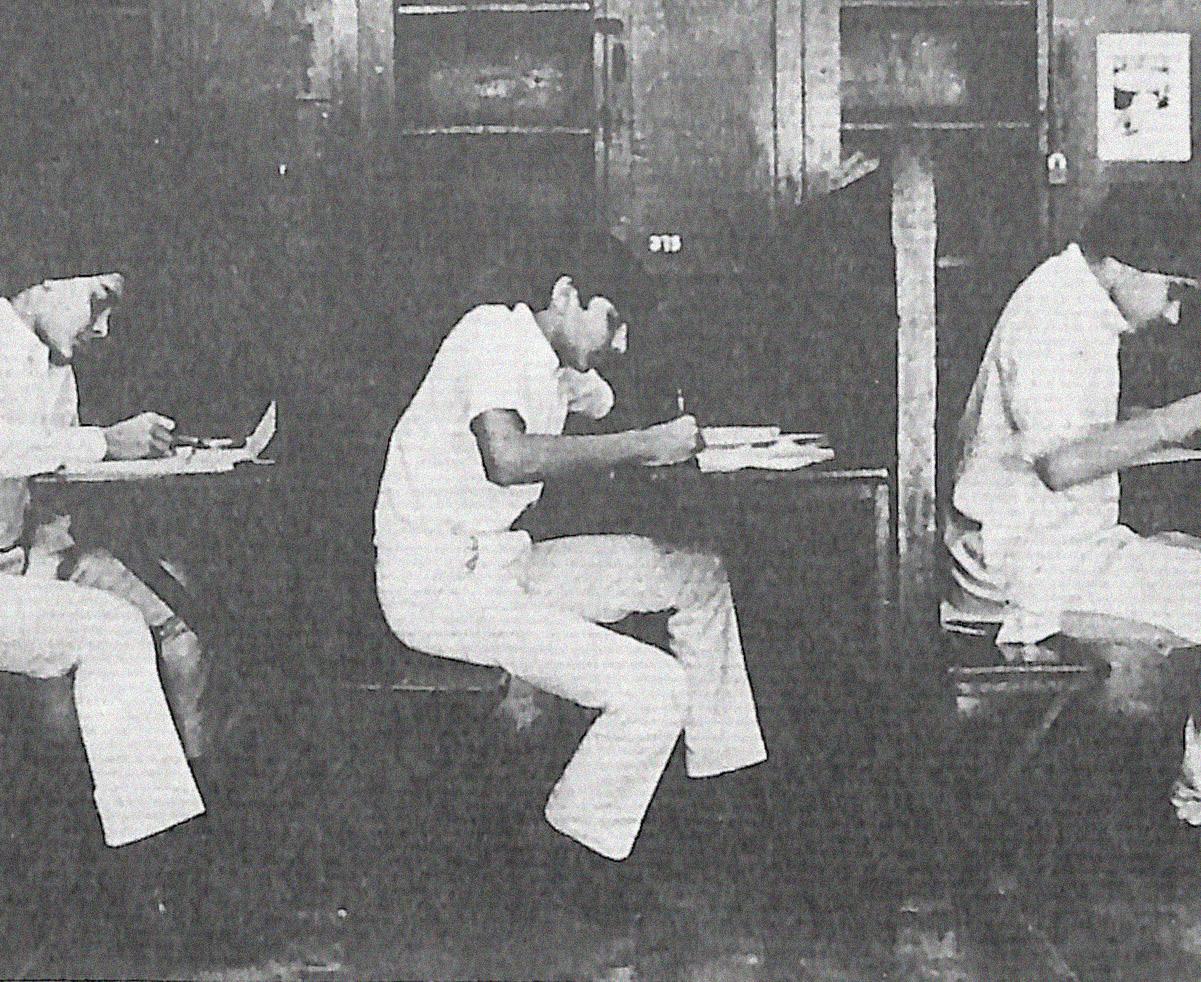
toye from The Doon School Archives
23
The Four Walls
school vivaan sood an article on the disconnect between school and the outside world.
I am sure that with a decent enough internet connection all of us can keep in touch with the world outside School. However, despite that, can any of us keep a constant finger on the world as things happen around us?
As I was home during the holidays, I noticed that I was able to better keep up with and comprehend the news and the problems that affected us, as compared to School. Obviously, at home, I was quite literally out in the real world and (as one does) experiencing the world, first-hand, whereas in School I was confined within the four walls of Chandbagh. One might then argue that, as students, regardless of boarding or day school, we are not fully exposed to the experiences of the world until we become adults. Being more conscious of the world is important because it helps us better understand the world once we leave School, and be better equipped to adapt to unfamiliar situations because we have the knowledge of other situations in similar contexts.
However, that is where I must make the distinction between the experiences of a boarder versus the experiences of a student who goes to a day school. For example, say I was going to a day school, on my way home from school, I would see the plight of people living in slums, or the aftermath of an event as shown in the news yesterday. Whereas in a boarding school, I would only be able to see what happens in School, which is often not world-changing or newsworthy. For me to connect with the world, I would have to read an article or watch a video or hear about it from someone.
Therefore, the distinction here is how directly we experience the world. In the former scenario, I would be able to see, hear, feel and process information immediately, or rather, first-hand. Whereas in the second scenario, I can only access and process information through another medium. While in both cases we may form ideas and assumptions about a given event, the difference is how we may respond or be able to react to a situation. We are bound by our senses and their interpretations of the world.
Now, this is not a comparison between day schools and boarding schools, but rather an examination of how we in boarding schools are conscious and interact with the world that goes on outside the walls of School. While we may debate and discuss events and ideas in School, until we come into contact with them in the real world, it would be difficult to properly connect the notions about a topic to its effects in the real world, or reinforce the ideas we had.
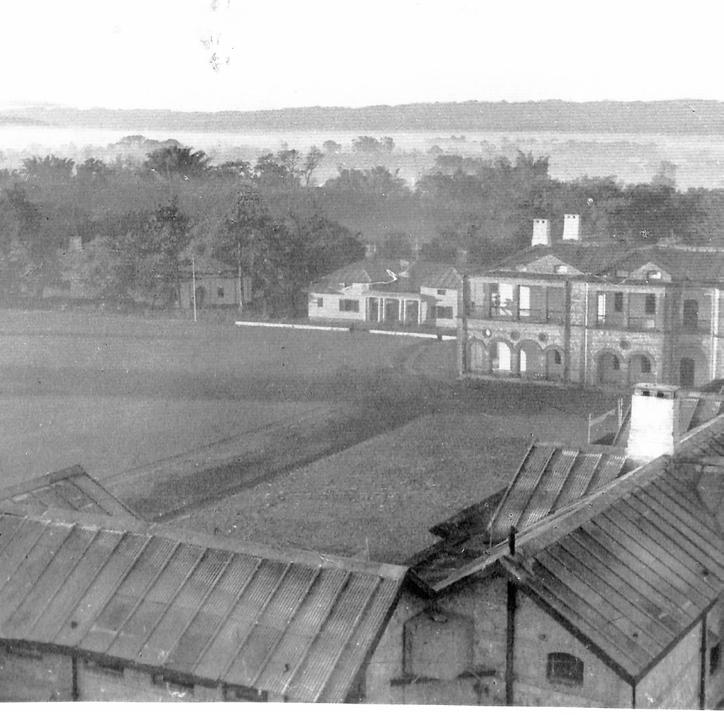
This sort of first-hand experience is important since it may help us fill the gaps in our knowledge of a topic, put a topic into a better context than what we previously thought, or give us a more nuanced perspective on said topic. Take a given event that has recently taken place. Once we have more direct experience with that event in the world, we may be able to better identify it in other contexts as well, or better identify other effects that were previously unknown to us.
In terms of problems that affect the world, we may posit that until we see them first-hand, we may lack sensitivity towards it as opposed to when we see or face them directly. While we may know of a given situation arising in our home cities, we may be more indifferent or less sensitive to it since we are shielded from it. Of course, the same can be said for problems arising halfway across the world while we are in our cities and homes, however, the amount of exposure to events
Continued on the next page.
24
a view of hyderabad house and kashmir house from The Doon School Archives
Continued from the previous page.
or problems would be less in School as compared to our own settings.
This is all not to say that those in boarding schools are completely deprived of this kind of experience since we do have time for this during our holidays, and more importantly, by reading or hearing about certain topics and events, we can still perhaps educate ourselves. Moreover, this sort of ‘reflected’ knowledge could serve as a reflection of how we individually process and understand things, and subsequently, allow us to refine this process. Furthermore, even if we are in an institution that is walled off from the rest of the world, putting ourselves into a perspective that is more directly affected by a situation can help better shape our view.
Therefore, while we may not be able to directly experience things happening in the world outside School, we can still understand them and better adjust ourselves when we do finally face them. We can better evolve ourselves to live in this increasingly interconnected world and adapt to change, regardless of where we are.
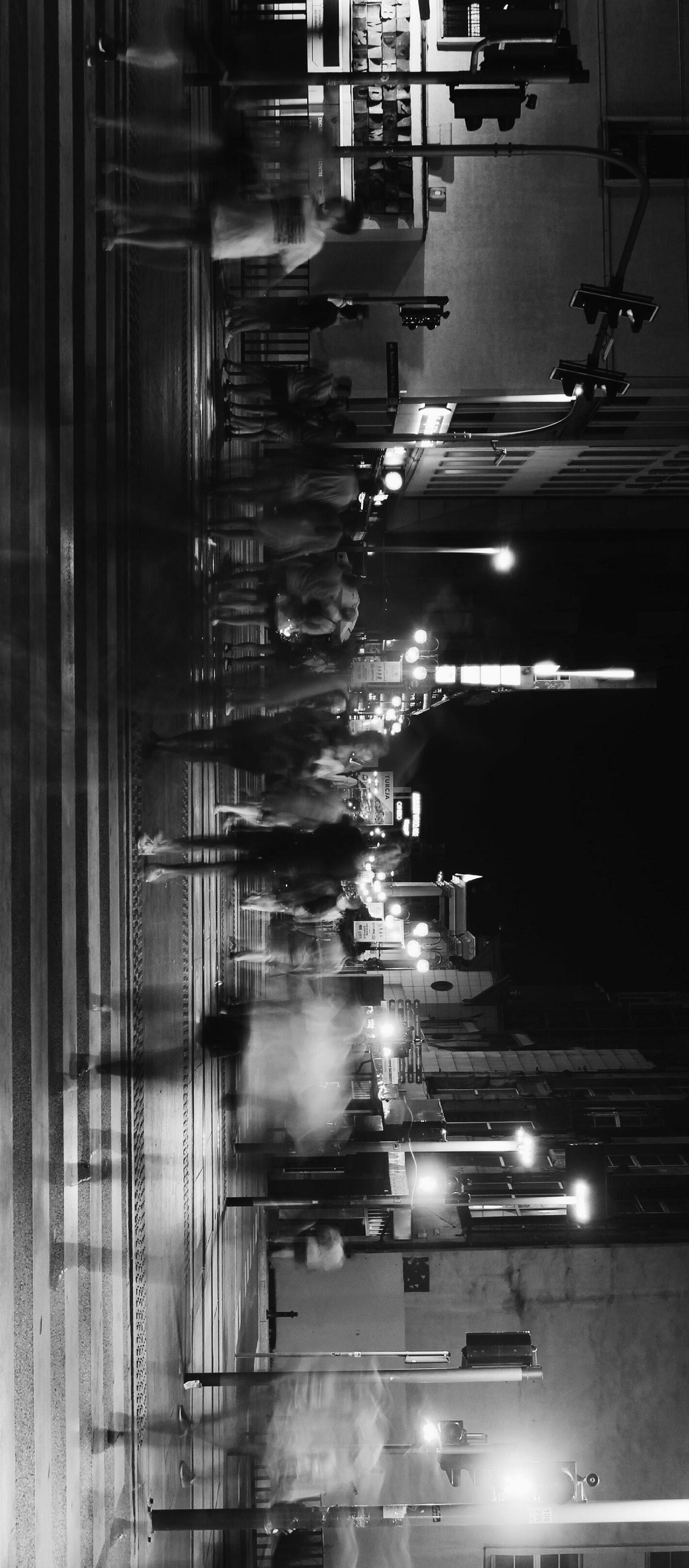
this sort of ‘reflected’ knowledge could serve as a reflection of how we individually process and understand things...
25 The New York Times
Seeking A GreaterNation
aditya guptaeconomy
literacy can lead india to further economic prosperity.
Yes, India is facing mounting challenges which, rather unsurprisingly, continue to grow rather than subside. Yes, our political stability is no better than that of the USA What we don’t have in their divisions, we have in the lack of our opposition. The little left of that was detained in jail in August. Yes, we are enveloped in a geopolitical conundrum that threatens the existence of the nation we have toiled to build ever since Nehru’s Tryst with Destiny. But, I am not here to tirade the myriad obstacles that lie in our path to becoming one of the tallest, wealthiest, and most powerful nations on this planet. Rather, I am here to illuminate the way forward as we aim to achieve what no nation has done: gain all that we have lost over the two hundred treacherous years of the British Raj. India is on track to be the Sone Ki Chidiya it once was, a feat never achieved before and one we, by all means, will only achieve if we iron out the few crinkles in our plans.
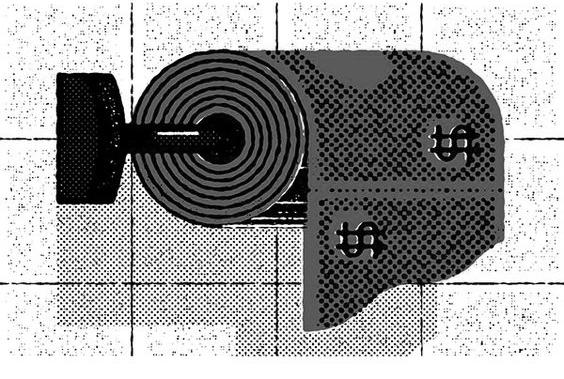
Achieving that would, in my belief, be the greatest tribute we could give to those who died, perished, and sacrificed themselves for our nation’s freedom. We have come a long way since our Independence. In a recent interview, Shashi Tharoor said, "Let’s not forget that India had a literacy rate of 16%, a life expectancy of 27, and the worst maternal and paternal mortality rates at that time. We were the poster child for poverty, famine, disease, and illiteracy. Now, we have a life expectancy of seventy and a literacy rate of 80%. Yes, we have problems, but our progress, given where we were, has been nothing short of astonishing."
India has come a long way since Independence, but there is still a long way to go. We are yet to achieve what we truly set out to and need to do: eradicate problems like poverty, illiteracy, and malnutrition. Resolving these issues will not only result in insurmountable improvements in the common man's quality of life but will also contribute to unprecedented economic growth. The logic behind this is simple. Let’s say you have two hundred million educated people in a country of five hundred million. This would invite two parallels in the economy: The educated two hundred million will be able to work in
high-paying jobs at large corporations. This would allow them to enjoy higher purchasing power due to the high income, enabling them to buy luxury goods like cars, homes, and designer labels. Luxury goods are more lucrative economically as they command higher gross profit margins or the percentage of revenue gained as profits. For example, Ferrari famously enjoys a gross profit margin of upwards of 20% compared to the usual average of about 15% or lower by lower-end car manufacturers like Ford and GM. This will, in turn, fuel a consistent cycle of cash flow in the economy that will foster growth and development. Conversely, the remaining three hundred million uneducated wouldn’t be in as good a position. Some may be able to break big despite their lack of education, but for the most part, these people would be employed in low-paying jobs. The lack of higher purchasing power would lead to lower sales of financially lucrative products like luxury goods and other discretionary items that are more wanted than needed. Their contribution to the economy’s cash flow wouldn’t also be an amount challenging that of the educated two hundred million.
Just imagine if everybody was educated, then you would be able to multiply the current value in an economy and see future growth prospects. If the economy was growing two times in the previous case study, this one could potentially grow five times, to wage a conservative hypothetical estimate. These aren’t just sheer claims. If everyone or a majority were highly educated, we would see more productive, efficient, and active participation in the economy. Not only would their contribution to an economy multiply, but it would also multiply for the financial markets. For the body to function, blood is needed to provide for all the functions. Similarly, for an economy to work, a fluid flow of money is a necessity. Without money, there is no economy. Period. So, if everyone is educated, we will see more significant savings, domestic inflows into the stock markets, and spending, which will help fuel economic growth.
Furthermore, a good, sound education will incite individuals to become active, responsible members of society in three ways: economically, politically, and philanthropically. Better finances will help those from poor backgrounds break the nefarious poverty cycle and reduce the inequality gap, as the poor will also gain a fighting chance to create wealth. Increased political participation will protect the fabric of democracy by having informed, outspoken citizens who won’t blindly accept their government's wrongs. And lastly, more expansive philanthropy
Continued on page 28. 26 hackermoon

27 Reuters
will promote a broader culture of social welfare, which will help improve socio-economic conditions in the country. Combined, the three would create a public model, which is all for the growth of the country’s economy. Let’s be clear that every problem in an economy starts with education. Take India, for example. The lack of a fully educated country has helped create our political dilemmas. Those without education are easily manipulatable, for they only understand what is explained to them. For example, religion has become a burning issue in this nation because the current state's uneducated cannot understand the concepts of equality, diversity, or secularism. Illiteracy has also left the poor and uneducated bereft of the benefits of the financial markets. Even with the safest, low-risk assets like index funds, they would have gained enough returns worthy of a secondary income stream.
Education can also bring its host of problems — case in point, the USA — but it also creates a more mature socio-economic culture in an economy. We talk about resolving a raft of issues like poverty, inequality, and illiteracy all at the same time,
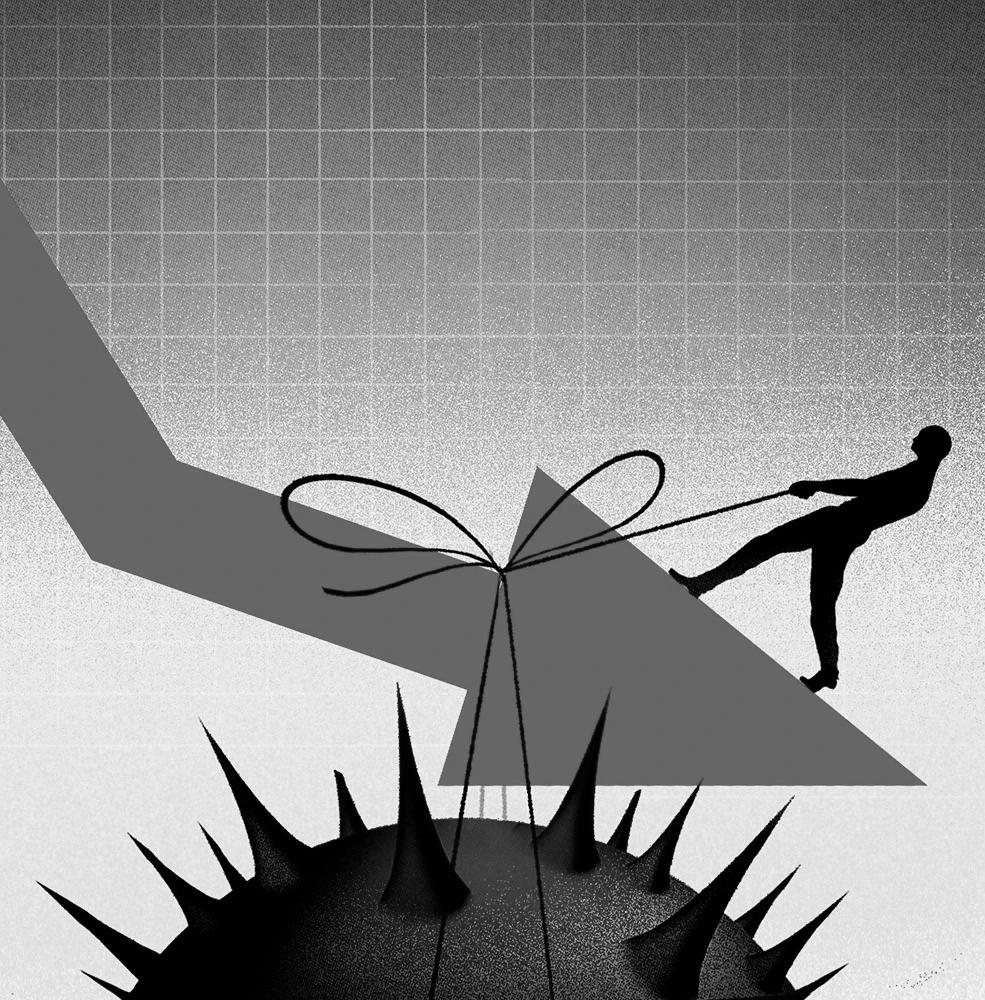
Foreign Policy
but we forget that fixing one can help resolve the others. This might sound like a utopia since many might not participate or subscribe to this, but even achieving this in small numbers would make all the difference in the world. We currently have the most dynamic demography, composed of the most significant percentage of youth. Ensuring that everyone gets a quality education will create immeasurable long-term benefits. In the short term, yes, we will not be devoid of these problems. They will be rampant, but with quality, scalable, and cuttingedge educational systems, we can aim to dissolve most of our socio-economic issues like poverty and malnutrition. Even global warming would benefit from an educated population because a literate population would be aware of the problems and know enough to prevent them from worsening.
Ultimately, everything starts and ends with education. If we can achieve high literacy, nothing is stopping Prime Minister Modi from creating a five trillion dollar economy. Instead, I’d say five trillion dollars would be undercutting it because India would be an unstoppable force in the global arena, armed with an educated population.
Continued from page 26.
28
school
A Technological Reckoning kabir takhtar
analysing the current information and technology policy in school.
We've seen in recent times a notable increase in the number of gadgets allowed at School. It originally started off with the S and Sc Forms having laptops, slowly transitioned to Chromebooks for A Form, and eventually, landed at laptops for Forms as low in the "hierarchy" as C Form. The Pandemic undoubtedly had a role to play in making this transition faster, which I think was bound to happen at some point with relatively predictable effects.
As clear as the intentions originally were, and as much as these devices have allowed for access to resources that are available online, the fact remains that they often act as distractions and hamper productivity. However, as much as one might try not to, anything you do or choose not to do at School is under the purview of your judgement and your responsibility. The same should apply to the usage of technology, where one makes an independent choice of using their devices as and when they deem fit. It is therefore a Dosco’s responsibility to strike the intricate balance between expectations for an ideal world and what the outcome realistically will be, which we must be willing to accept.
An important aspect we often overlook is the impact that adjusting to new mediums of communication has had on Masters. After the first few months, I believe it was all smooth sailing and relatively effective teaching took place, which dare I say, ended up being better in many ways, due to the use of devices like electronic writing pads and websites that allowed one to better prepare for exams.
Problem-solving skills have also been affected on multiple levels along the way, both positively and negatively. It has been encouraging to see how problems were tackled along the way and tasks were further streamlined to allow for real classroomlike interactions. The IT department had a huge role to play
throughout the same, coming in with comprehensive guides to help the entire School community.
Reflections aside, what can be done at the moment? It's easy to talk about how everyone must be responsible and mindful about the use of these technological resources, but steps need to be taken to encourage that.
In my opinion, rather than trying to enforce the discipline required for productivity through strict rules, a policy of making the path to effectively using technology in School more engaging should be adopted. We have been seeing examples of the same with active group discussions and resource collection platforms that encourage one to spend some time focusing and acquiring information that would otherwise be more difficult to come by. If we keep going with the same intensity, there is no better way to utilise education technology than to assist oneself in connecting to peers and gaining information through reliable sources across the vast network of the internet.
It would also be motivating to see Doscos come forward with any new resources they find, like websites, and for there to be a common platform to share them across the community. Either by Form or by subject; something along the lines of a section in the Weekly for things to try out on our devices would make us (and especially the Junior Forms) look forward to spending some time exploring new ways to enhance what we've been learning throughout the week.
Lastly, I believe that if we're kept busy enough (which we are as Doscos), there isn't much time left to spare for us to use our devices anyway. But for the little time that we do have, I think there is a bright future where we can be trusted with what we're provided, and no questions are asked regarding our level of concentration and productivity alongside technology.
29
On Loneliness
opinion on solitude and its benefits.
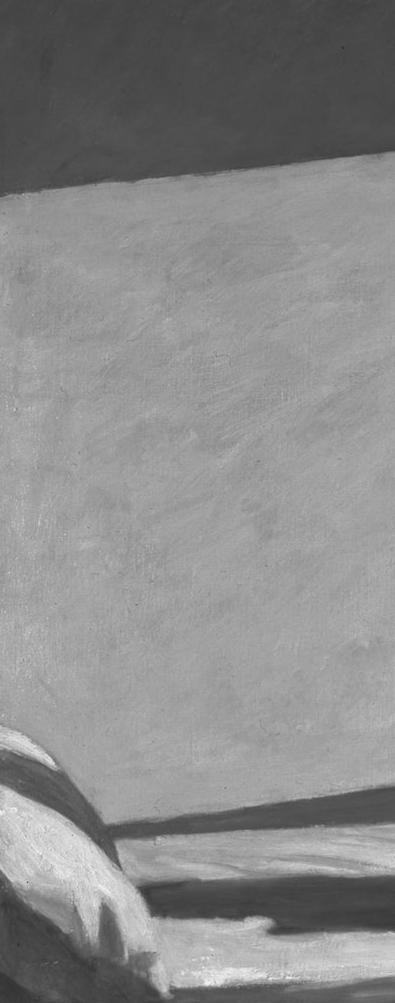
avi bansode
Solitude, desolation, isolation, loneliness, forlornness and alienation - all of these words captivate one’s feeling of being left out, by themselves or simply lacking companionship. In today’s world, with all the side effects of the Pandemic, a lot of students have dived deeper and realised that loneliness does not always have to be negative. The primary issue when one is alone is that we, as young human beings, feel that alienation is bad and that missing out is going to hurt; however, that is not always the case. While, yes, humans are genetically and physiologically predisposed to be extremely sociable beings, loneliness and desolation are not always feelings that should always be driven away, but rather embraced sometimes.
There are a multitude of reasons why solitude has been constantly stigmatised in society. The primary belief is that humans have always been meant to socialise and thrive alongside other beings; being alone has been considered an inconvenience, something to avoid. For that very reason, it has also been used as punishment; isolation in the form of solitary confinement has been used as a punishment within prisons for eons. It is meant for those prisoners who may be at risk in prison, or pose a hazard to inmates around them and while its primary goal is meant to teach the prisoners the importance of companionship and community, research has proven that it has no effect in discouraging prisoners from committing further violence.
However, one unexplored aspect of this is the fact that society has disbanded it. As juveniles, we are always supported by people surrounding us. We are never left alone. While this is mostly for safety purposes since young kids cannot sustain themselves, after some point, everyone learns to break out of it and venture into their sociable selves. Regardless of how much one wants to distance themselves, society portrays desolation in such a way that one feels oppressed when alone. A common example of this is the ever-present “fear of missing out” in School, especially in one’s Junior Forms; this idea has been supported so much by people, that it has gotten to the extent where even a slight exclusion is followed by overthinking and anxiety, a vicious cycle of deteriorating mental health.
However, the fact that contradicts the central issue is the benefit it can bear; ranging from its cognitive benefits to its increase in simple emotional control. The first situation could be personal turbulence. While the instinct is to reach for people in the close circle for support of any kind, many people resort to isolation and this is extremely beneficial in many cases, as it teaches one about themselves and their emotions as well. In simple words, we can summate this by saying that when people detach themselves from the intense happenings in their lives, they get a more enhanced sense of their value in the particular happening. This could be especially important to students who can take a break from active social participation, and focus their energy elsewhere, perhaps on emotional repair.
Another benefit of solitude is one that not many experiences. That is to do with personal epiphanies; obviously being alone improves one’s focus, and with this focus comes better thinking and increased aptitude. These moments are like tiny sparks and can be about absolutely anything under the sun, from existential crises to basic philosophical paradoxes. Many scientists even encourage people to set aside some "alone time" to reconfigure their thoughts and relax their brains. It has been scientifically proven by cognitive researchers that this does improve brain function.
The third part of it is the obvious one, that most people do explore. While there is no distinct, or defined term for it, “selfenjoyment” is the happy factor involved here. Spending a lot of time with people can understandably drain their social battery and prefer to spend some “metime”. One will find it much easier to relax by themselves in a comfortable place rather than in a loud, busy area filled with people.
Engrossing yourself in single-person activities such as reading, writing or even something as simple as watching television or listening to music helps you get into a calm, energised mindset. Isolation gives
Continued on the next page. 30
Continued from the previous page.
one the space to relax, learn more about oneself and discover who one is on the inside. Now, one might or might not be able to comprehend these simple facets of this; they may question the cognitive science that lies behind it. Yet, years of research has proven that it does have a strong effect on one’s brain. The centre of this phenomenon is at the default network, a set of brain regions that are heavily involved with inner thoughts such as reminiscing, imagining, planning, and even thinking about others.
People who embrace loneliness as an important factor in their life in good balance, tend to show strongly wired

default networks and higher grey matter volumes which means that the information processing is more efficient and could potentially build a higher IQ. The default network is also known to be involved in mental capacities which involve time and space as well as the reconstruction of one’s past, prospecting and manifesting future. It is also recognised for its role in representing other people’s actions, intentions and affiliations. This is simply because people who spend time alone spend it on thinking deeply which means that they are more likely to use their imagination, memories and hopes for the future.
However, a person may forget that there is a fine line between social exclusion and spending regular time alone. One cannot
simply overuse their time alone — it obviously has an adverse effect which is what we see in depression caused by desolation.
So, how does one know if they’re hitting the right balance? There is no distinct answer for this; one naturally knows their social standing within their affiliation and they get better at recognizing it as their mental features mature. Interacting with other beings, creating synergy with certain people and socialising are also vital factors in a person’s cognitive development and there is no certain person who can ignore all of this and still thrive. A lack of socialising can lead to an adverse effect on the person mentally, so one has to know how to strike the right balance.
31
morning sun
a painting by Edward Hopper
All the World’s a Plate
govind dhar,
from dismal michelin meals to hard-to-find street foods, the odd reminiscences of a food writer.
I’ve spent most of the past twenty years travelling the world to write about food. The job has involved a lot of boredom, some genuine surprises, and adventure when I least expected it. Starkly, my youthful notion of the food writer as a fusty snob, disparaging limp vegetables and delivering pernickety one-liner critiques was naive. As a journalist who has a foot either side of the print and now digital publishing eras, I’ve collected a few tales from my career to hopefully encourage the travel writers among you to make your own stories.
Eating at famous restaurants isn’t always what it’s cracked up to be.
I’m often staring at a plate, trying to decode the pretty vegetable art, lurid drizzles and smears undulating under once overfed protein. I’m usually being spoken to, uninterruptedly, over eight courses of food and wine by a press relations executive. As I listen, I ask myself, who reels off the gloriously boring minutiae in the journey of a langoustine, from the ocean to my plate without questioning their life choices? Who retells of a chef’s obsession for foraging for wildflowers with unhinged ambition through European valleys and dales, while keeping a straight face? At other times, I’ve been Mr Table-for-One, seated alone in the dead hours of a restaurant service, making notes on each course, silently photographing each dish, wishing I had someone to share speculations on how my langoustine had lived. How do influencers make this look like so much fun? Do they question my life choices?
A lot of my food writing was commissioned while traditional print publishing’s stranglehold on food and travel snobbery was dissipating, just after I left university in 2002. YouTube, Vine and Instagram were just about taking hold of the world, or like the iPhone, hadn’t been invented yet. Once we had smartphones with decent cameras and web access, the days of trumped-up journalists, flying around the world for degustation menus, were numbered. But while the going was good, I notched up a number of 'hoity-toity' food experiences, as well as some slightly questionable ones.
There was that time I was invited to spend eight days in Champagne, France. We visited at least four maisons a day and sampled five cuvees or more per house. Aware that I’d have to write about what I’d consumed, keeping alert enough to make notes was a serious challenge, but thankfully I could still read my handwriting by the end of the trip. Then there was the time I was flown to London and slipped mistakenly into the Laureus Sport Awards pre-ceremony dinner for Olympic champions. I wasn’t meant to be there, I found out much later. But I’d eaten dinner with the kings and queens of 20th Century sport. It would’ve helped if I knew more about Alex Ferguson, other than his temper.
Then there was that time that I was invited to go hunting with a famously angry Michelin-starred chef, whose replies to my mails mysteriously ceased after I sent his press team my less-thanglowing review of a dinner he famously put on in Colombo. Let’s just say that when the other dinner patrons suggested the tastiest thing on the menu was the butter and rolls, you know the chef isn’t getting a brilliant write-up. Aside from the schoolboy joy of eating at a restaurant called Flavour Bastard, helmed by none other than a Sanawarian chef (Pratap Chahal — Google him), the meal was punctuated with bonhomie, back slaps, promises to meet when we were back in Delhi and genuine warmth. Telescope to another meal not five minutes walk from here at a restaurant (that is now closed) and this was the scene:
“So, how do you like it?” asks the chef with two Michelin stars to his name. The Frenchman, now towering over me, arms crossed against a barrel chest, is more ‘grouchy rugby player’ than ‘effete kitchen wiz’. In this near-empty restaurant, I am uncomfortable for not having been wowed by the meal. The paired wines were fancy but uninteresting. The décor was funeral parlour waiting room chic. I wasn’t sure that honesty was going to be the best policy here, so I mumbled something polite and non-committal. I expected a tirade. I received a shrug.
Fast forward ten years and I am diving in and out of dive bars in the skull-numbing heat of Colombo at sunset, in search of the country’s best arrack, short eats and curried innards — a delicacy made famous by the city’s Malay Muslims (whose colonial-era homes were razed to the ground last year on Malay Street). Baabath or goat intestines arrive in a glutinous dark gravy of red chilli, onions, garlic and ginger. It is prepared by a chef with no Michelin stars, but moments earlier was helping his daughter with homework by tubelight in a kitchen you can see from the roadside. Eaten over pittu — cylindrical rolls of white or red rice bathed in coconut milk — the food is hearty, delicious and offers the exciting bit of unexpected gristle in the offal. Would I trade this for buttery turbot with bland microherbs in London?
Hong Kong. I am welcomed into a multi-storey, family-run Cantonese restaurant in the city called Fook Lam Moon. It is so popular with politicians, celebrities and local mafia, that urban legend has it that the windows have been frosted over so paparazzi (or was it assassins) wouldn’t shoot patrons. Black fungus mushrooms like lace frills adorned some starters. Soy, ginger, scallions — all expected in or around the openers here. But now a whole roasted baby pigeon sat in the middle of my plate for the third course. How does one eat this? Despite being pecked by its beak while tucking into its lean flesh, the bird was delicious, though I’m unsure I’d have the courage to revisit it in the future. Seven-courses completed for my ‘work lunch’, I am tempted to roll down the stairs to Hong Kong’s bustle, and
culture
ex 192 t, '97
Continued on the next page.
Continued from the previous page.
daylight. But no. A school friend insists on a speedy tour of the city’s street canteens. Jyu Daan (bite-sized clumps of fish) simmering in vats of chilli and spice, small grilled fish filled with roe, and chicken skewers. "Why do you only eat at the fancy places?" I am chastised. "Here’s the real food," he said.
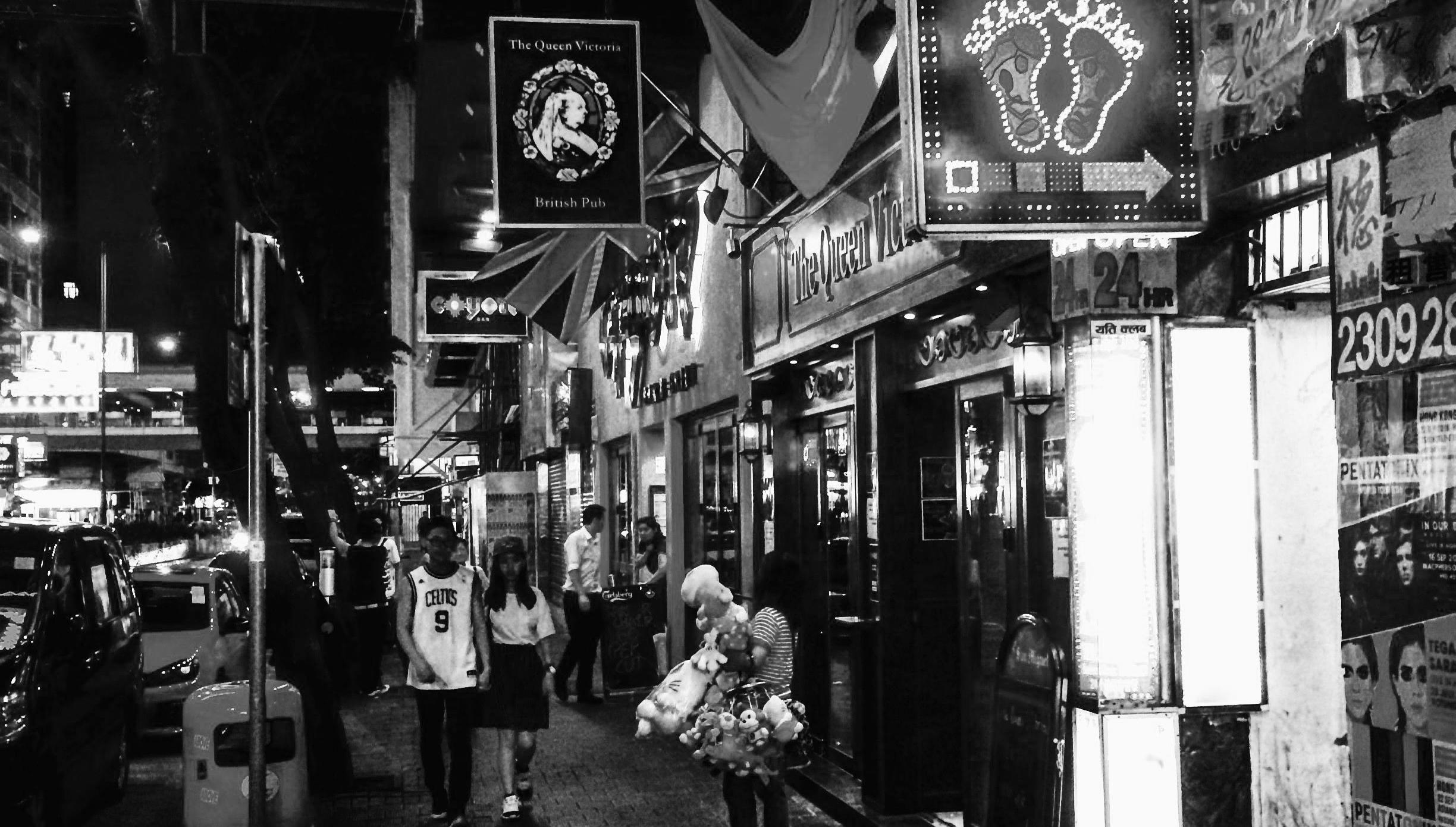

Lisbon. Another day, another Michelin restaurant. Anthony Bourdain had famously elevated this Portuguese chef to the world’s notice. No doubt, my fellow group of journalists and I were treated to a telegenic cuisine. Plated in fussy, ingenious ways — octopus, cod and sardines appeared slathered across tarts, sliders and wafers via skilful reductions and pates. So much of the liquid here has been put through emulsification, diffusion and centrifugal force. But the kitchen had miscalculated our appetite. How do you split something the size of a gol gappa? But more importantly, how do we ask for more food? Indian propriety ensured that we smiled through the hunger pangs. But a boarding school instinct kicked in. I pretended I was receiving a phone call and extracted myself from the busy restaurant. Walking into the alien streets of Chiado, I sighted a local bakery. Down the stairs, two at a time, eye on the door, I scarfed down two delectable brie and presunto paos. The shell of the bread was flaky crisp. Its doughy centre was pleasingly
chewy. The cheese was unguent, the ham, salty and smoky. Those sandwiches remain more memorable today than anything I ate at the restaurant.
Bangkok. Gaggan Anand made his name here as the chef to rival Heston Blumenthal. He made an unbelievable lychee dessert that I haven’t experienced since: its texture was reminiscent of Turkish dondurma, chewy, fruit-sweet and moreish. But it's the hawker noodles and duck soup at the Bumrungrad Hospital canteen I will forever crave. Served out of steaming vats by stone-faced cooks, the soup is stock-heavy and fragrantly sweet, umami rich and filled with delicate chunks of yielding duck slices. Come lunchtime, the canteen is bursting with visitors who come to the hospital, just for the food.
The digital revolution has made the food critic a travelling oneperson cameraman, editor and everyman foodie. It’s a stunning change from the velvet-rope days of the newspaper food critic. Revealing to us the best chefs of the world, regardless of where they reside, social media and streaming television spoils us for choice on where to fly, hike or drive for good grub. But the hunt for new and exciting food experiences remains elusive and if anything, finding those unique, singular experiences, has become harder. If I’m not wrong, Doscos however, won’t be deterred from trying.
33 Govind Dhar
Public Health in India
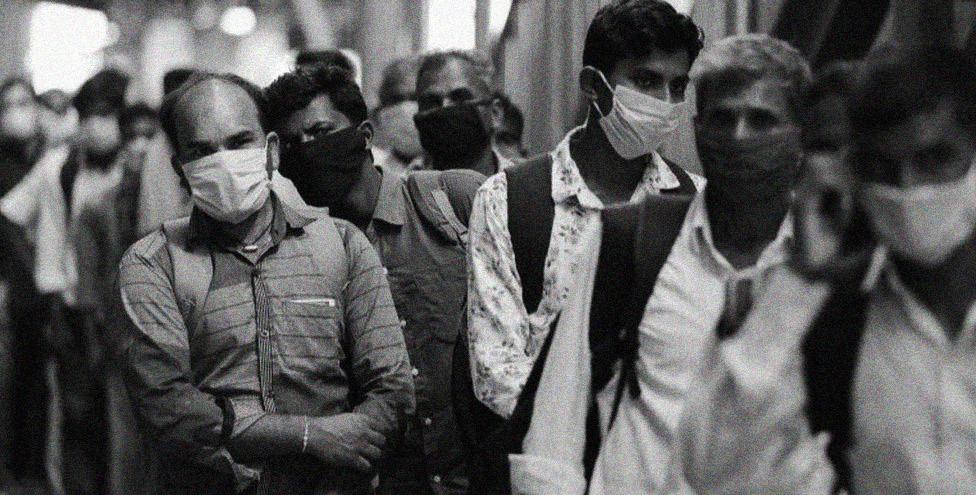
the past, present and the future of public health in
With a steadily growing population of over 1.4 billion, public health has become an issue that has been brought to the forefront of our country's political and social priorities. The increasing emphasis of administrative machinery on improving the state of our healthcare establishment is testimony to this. In a socially diverse country with extreme economic disparity, strengthening the public health system is key towards building a healthy nation.
In 2018, the Union Government launched the ‘Ayushman Bharat’ initiative, enshrining the core principles of public health development. A landmark scheme, 'Ayushman Bharat' aimed at a two-fold approach towards consolidating healthcare delivery in India. First is the Health and Wellness Centre initiative (HWC) to upgrade existing sub-centres and primary health centres to improve rural primary healthcare. Second is the National Health Protection Scheme (NHPS) to provide financial security to impoverished communities and make healthcare services affordable. The NHPS, now known as the PMJAY ('Pradhan Mantri Jan Arogya Yojna') provides an insurance cover of five lakh per family per year in government hospitals and recognised private hospitals for availing secondary and tertiary health services. This programme envisioned to align with state schemes is a remarkable achievement in our health journey. However, the practical challenges it is bound to face should be the focus of discussion among policymakers. A thoroughly strategised approach is necessary for the initiative to achieve its intended objectives.
The issue has and will continue to be politicised. The Chhattisgarh and Odisha governments have decided to limit the extent of the
scheme delivery in their respective states, pushing to implement their own versions of this vision. While such roadblocks are inevitable, policy experts have to find ways to avoid the derailment of the continued implementation of the process. This article further explores certain key issues that require further deliberation.
Firstly, is the issue of infrastructure design and primary healthcare delivery system. Upgraded HWCs are a welcome step, but they require significant upscaling of human resources. There is a need for substantial investment in training and recruiting mid-cadre health professionals such as community health workers and nursing practitioners. These personnel must be well-equipped to meet the daily needs of the communities they serve, with the overarching physician support offered on an intermittent basis. Efficient supply chains and equipment delivery systems must be in place. Attractive financial and social security incentives can help attract young healthcare workers to serve these neglected communities.
Secondly, the idea of the establishment of an Indian Medical Service has long been in the realm of political discourse. The goal is to develop a cadre of Registered Medical Practitioners on the lines of the Indian Administrative Service to serve the public health needs of the country. This would be a suitable solution to the issue of the maldistribution of doctors in the country. These doctors can serve as a link between the central government institutions and be available for state deputations if required.
Continued on the next page.
husain abbas, ex 675 t, '15the nation husain abbas, ex 675 t, '15
india.
India Times
from
Similarly, a State Medical Service should be formed to discharge these functions at the state level. Additionally, states like Uttar Pradesh have introduced a mandatory three-year service period in district hospitals for specialist doctors after earning their specialist degree.
Thirdly, is the rejuvenation of the district hospitals. The devastating COVID-19 Pandemic exposed the deficiencies of our public health infrastructure. The equipment supplies, workforce scarcity and infrastructure irregularities must be resolved. The district hospitals could be linked with new health institutions as teaching hospitals, facilitating their development while training a larger workforce. It is necessary to connect primary healthcare to higher levels of services through a two-way system of referral and follow-up. This would ensure continuity of care and public confidence in the system. India has a mixed health system, therefore the reliance on private entities cannot be overlooked. It is essential to develop a network of healthcare providers from public and private domains to offer depth at each level. This district network can work under a trained district health officer managing the logistic challenges. Also, the district network could aid neighbouring districts lacking particular specialised services as and when required.
Lastly, we need to link all central and state-level health schemes
to complement each other. This would ensure inclusivity of all target groups while providing for portability of services in case of migration for education or work. A single payer system can develop, with the vulnerable sections provided with free healthcare. Additionally, others can be linked through a premium-based scheme. Health information systems and regulatory devices must be in place to guarantee accountability and efficiency. Also, this can highlight deficiencies to improve and consolidate the initiative. Active community participation would serve as the drive to percolate the programme incentives at the ground level. Building on past initiatives such as Accredited Social Health Activist (ASHA) and Village Health Guide, community involvement serves as the cornerstone of Universal Health Coverage.
In conclusion, our expanding healthcare needs require plausible and practical solutions. The collapse of the health system during the Pandemic cannot be overlooked. Policymakers must contemplate the issues plaguing our public health system and develop amicable measures to resolve them. 'Ayushman Bharat' is a welcome step in that direction and has achieved modest success. However, we need to build on the issues that I have highlighted in this article to ensure optimum delivery. If we are to cater to the healthcare needs of 1.4 billion people, the strategy and management plan must be solid. It is essential to have a reliable oversight to ensure continued scrutiny and provide room for improvement.
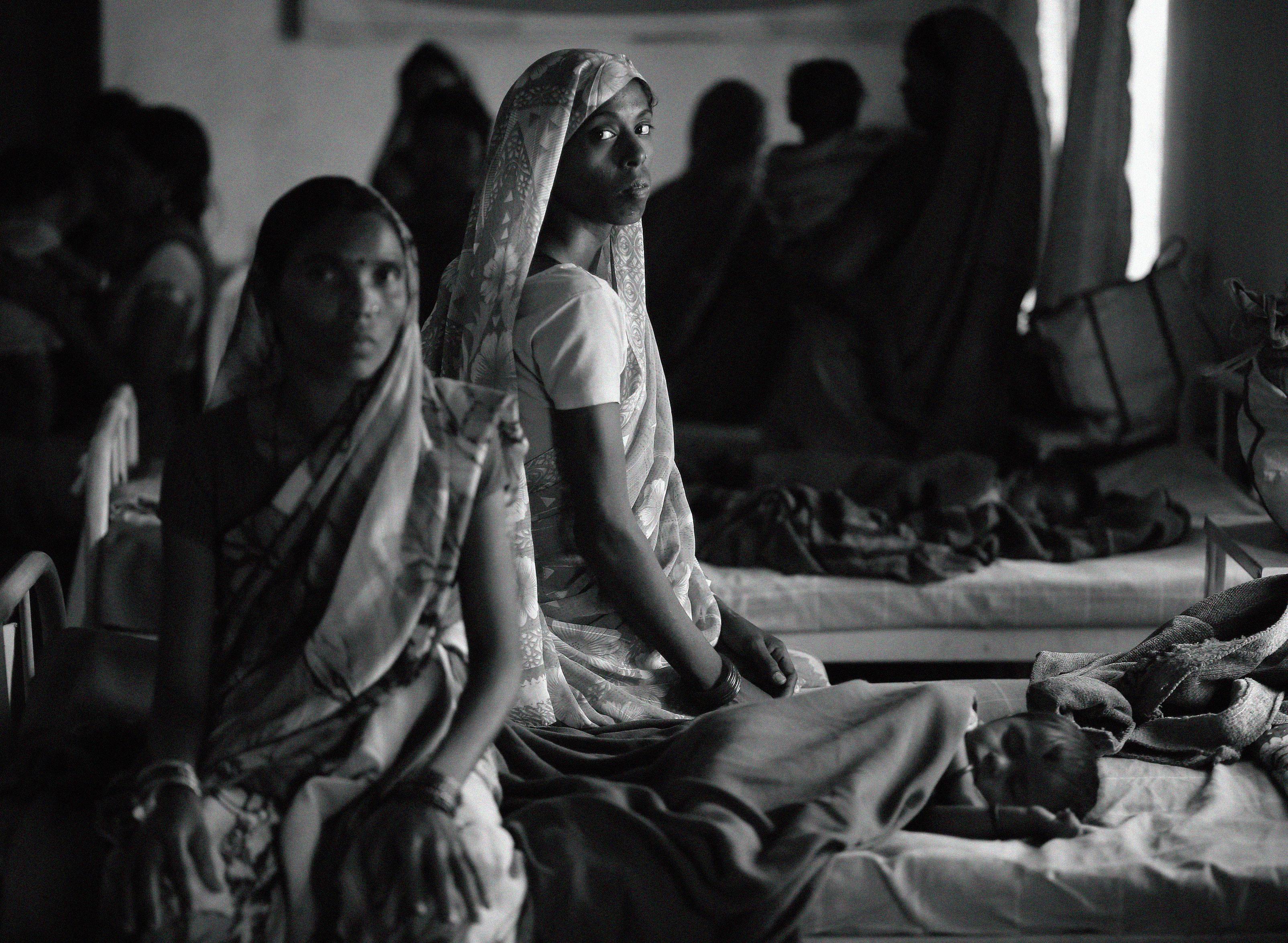
Continued
the previous page. 35 LA Times
Hegel, Music, and the Civil Rights Movement
uddhav goelculture
the civil rights movement and music alongside hegelian analysis.
The radical politics of Black musicians during the Civil Rights Movement has been long overlooked. At the end of the day, it was these musicians who, through their popular music gave character to this movement. They also sensitised their White audience and created protest songs which shook the racist establishment and made it bend.
I came across this interesting observation as I looked for research questions for my ISC project and found it to be worth examining. To understand this relationship, one needs to first gather information about the background of Jazz and Blues and consequently understand their cultural and historical significance as well. Jazz and Blues were distinct musical genres originating across various Southern states, which were common practices amongst enslaved Africans for alleviating their pains as well as for community enrichment. Both had roots in European harmony and African rhythm. The call-and-response, the Blue notes and the repeating progression of chords in Blues, for example, are all inherited from authentic African musical traditions. The reason why there is an absence of traditional African drumming in both these genres is because drumming by slaves was outlawed. However, the recurrent aspect of African music was retained through “body rhythms”, a crucial point for later discussion.
Apart from rhythm and melody, the lyrics too were equally significant. The lyrics helped the African-Americans express their day-to-day struggles and woes while also preserving their distinct culture. The lyrical content during the pre-war (American Civil War) period was generally related to complex subjects such as flood and drought, magic (hoodoo), economic struggles etc. that the community faced. In the post-
war period, the focus shifted more on simpler subjects such as sexual worries and relationships. African culture and spiritualism were also preserved in lyrics with constant references to them. For example, the mythical Blues artist Robert Johnson composed songs with references to hoodoo (not to be confused with voodoo), “hot foot powder” in Hellhound on My Trail and a very subtle reference to the crossroads god Esu Elegbara in Cross Road Blues. Notably, the same Hellhound on My Trail can be interpreted as a biographical song of Johnson’s stepfather’s experience of nearly encountering lynching.
When one thinks of the Civil Rights Movement one thinks of Martin Luther King Jr. (MLK) and his speech, 'I Have a Dream'. This speech could have not been possible had Mahaila Jackson not been there and shouted to MLK from across 50 feet away asking to improvise and “Tell them about the dream”. Moreover, the Rhythm & Blues and gospel singer Mahaila Jackson had lent her voice to the noble cause of King. Mahaila, MLK’s favourite gospel singer’s music inspired him in times of trouble, travelled with him, was sung at rallies before his speeches, and even sung at his funeral. Singing at iconic junctures of the movement like the 'March on Washington' made her voice the soundtrack of the movement.
While Mahaila Jackson was preaching the gospel, there was Nina Simone who preached revolution. Nina Simone and other artists like her, to their own detriment, created secular protest songs and adopted Pan-African aesthetics. To her, it was the path to achieving economic equality by seizing the means of production, which to her was the same as the path that led to racial equality. Mississippi Goddam is one of
her iconic songs which provide political commentary and protest against tragedies such as the bombing of the 16th Baptist Church and the killing of Medgar Evers. The song not only talks about hate crimes but also critiques the systemic aspect of it all, inefficient justice systems and “go-slow” reform-loving liberals. The place where she performed this song for the first time and the audience that she played to is also very significant: The venue was the prestigious Carnegie Hall with a majority White audience, This performance showed her courage and the widespread impact of her performance. Tired of injustice, Nina Simone expatriated to Libya with her music career suffering immensely due to her outspokenness. This was followed by financial struggles and issues relating to mental health. Fortunately, her career came back on track in the 1980s.
Another famous Jazz musician who suffered as a result of her outspokenness was Billie Holiday. Singing Strange Fruit, based on a poem written by Abel Meeropol, brought her under the FBI's scanner. The song, a solemn number, as opposed to the conventional upbeat protest songs haunts the listener with its gory details of lynched Black men and its sombre and ominous tone. The Bulging Eyes and the Twisted Mouth, Black Bodies Swinging in the Southern Breeze and The Sudden Smell of Burning Flesh all paint a tragic and ghastly picture. Shortly after performing this song for the first time, she found herself frequently targeted by the FBI, even arrested for a year and stripped of her licence to perform at nightclubs for an entire decade. Even though her drug abuse was real, she was definitely treated differently by Anslinger, the FBI commissioner, as compared to other similar high-profile cases of Judy
Continued on page 38
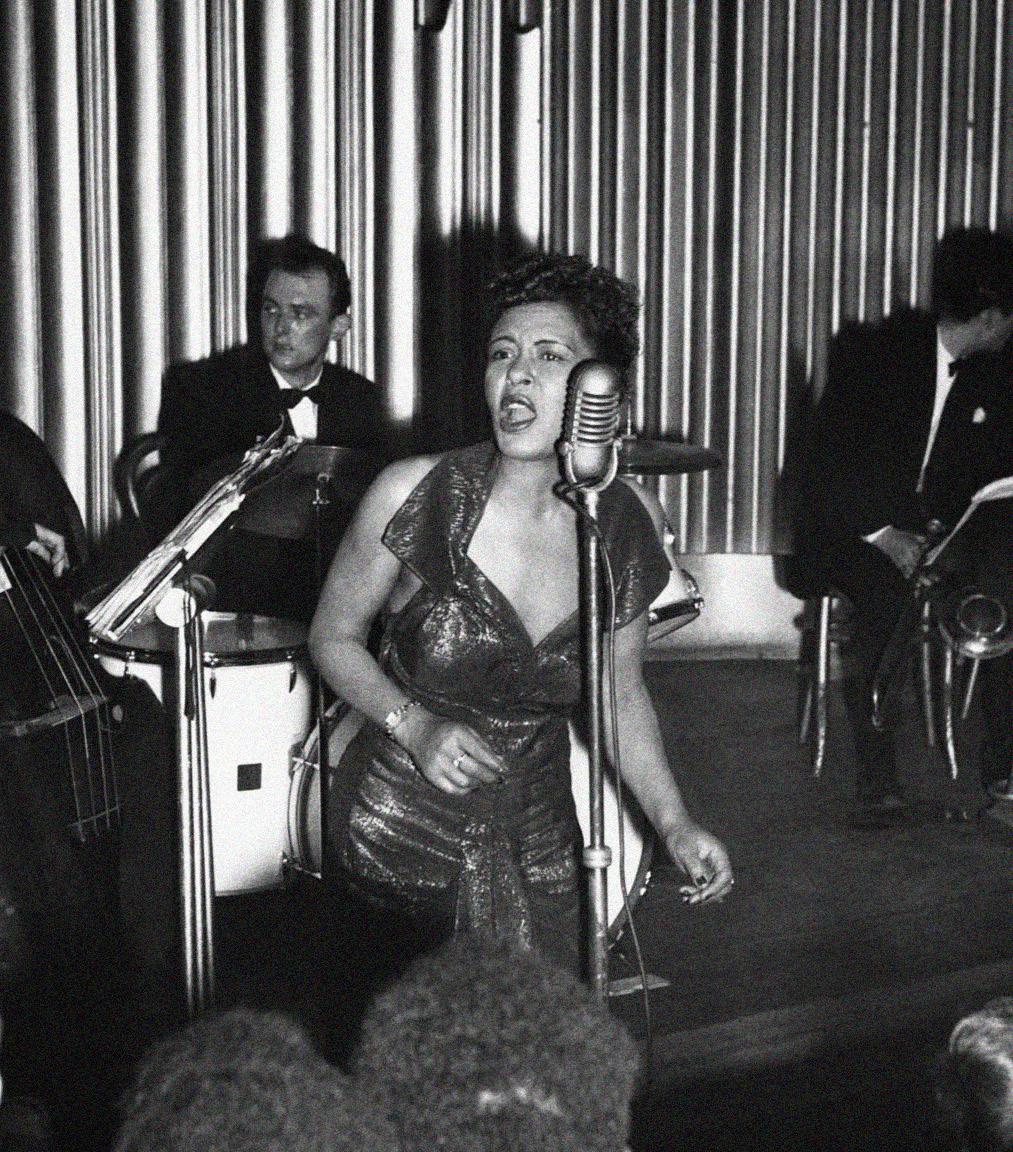
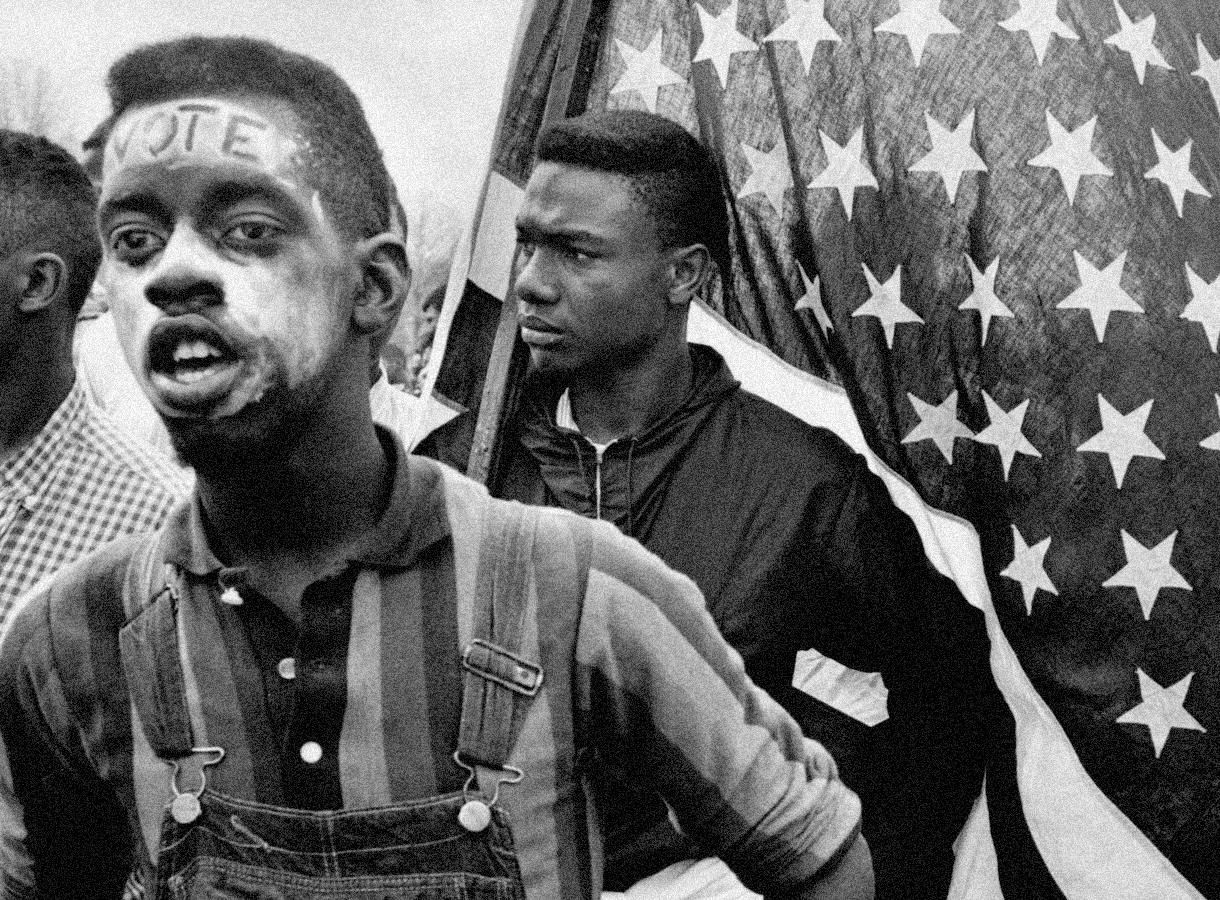
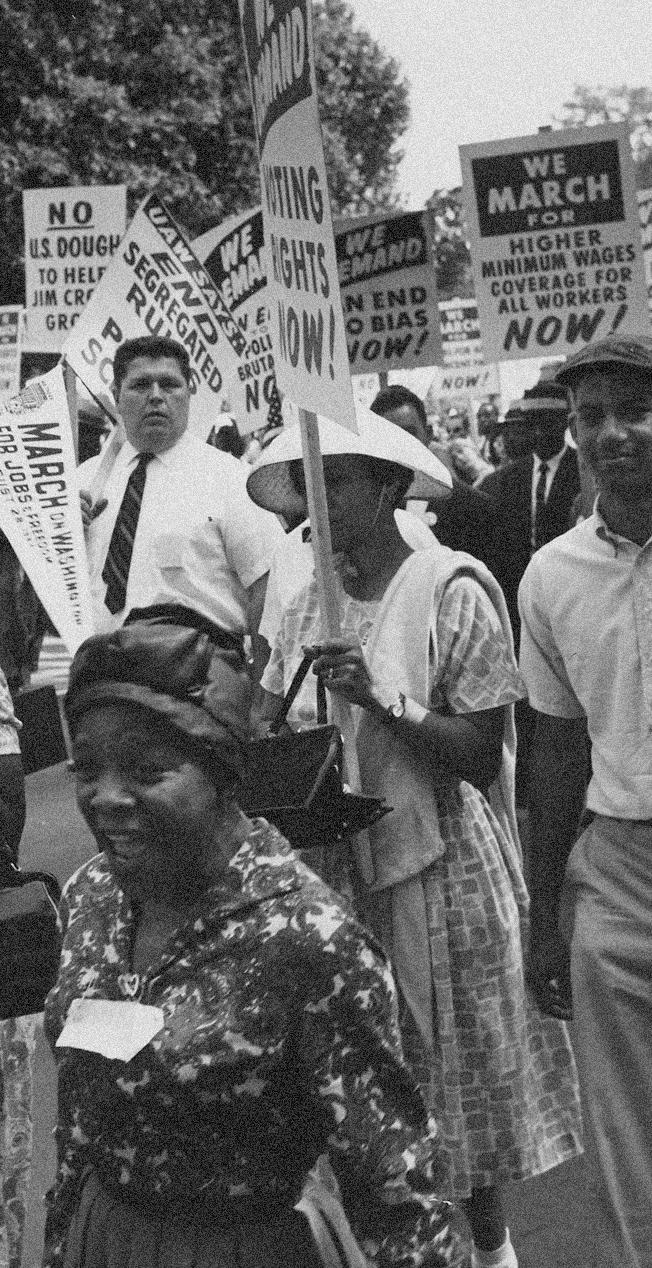
37
The New Yorker
The New Yorker
National Archive
Garland. She was deliberately silenced, stalked by the FBI goons and wasn’t left alone on her deathbed where her hospital room was raided and she was handcuffed. Anslinger, who targeted Lady Holiday, was a known racist who was also known for despising Jazz music because of its origins in Black and Western musical traditions, as much as its ability to attract both White and Black audiences. In a way, Billie Holiday became an early icon who exposed systemic oppression by American institutions for generations before and after the Civil War.
John Coltrane, the legendary saxophonist was also heavily involved in the movement. He attended Malcolm X’s speeches, shared many ideas akin to him and most famously wrote the song Alabama in response to the infamous and racially motivated Birmingham Church bombing.
Not only did Jazz and Blues artists speak out against racism and inspire the masses, they also shattered the notion of “White Supremacy”. They both effectively challenged Western hegemony over music and gave the world genius Black composers like Duke Ellington, Miles Davis and B.B. King. Not only did they equal their White peers but even bested them at their own game. Borrowing a quote from Charles Mingus, “Each musician when he takes a horn in his hand trumpet, bass, saxophone, drums, whatever instrument he plays, each soloist, that is, when he begins to ad lib on a given composition with a title and improvise a new creative melody, this man is taking the place of a composer.” Mingus talked of the pencil composers (Beethoven, Bach and the like) and then he talked about spontaneous composers who were essentially Jazz composers. Bill Evans, another Jazz musician, commenting on this aspect of spontaneity called it a “further challenge” and likened it to challenges faced by Japanese visual artists. This modernist movement therefore broke the limitations in composition, put on by classical Western music and started
new movements — Rock, Heavy Metal, Hip-hop and Rap — which owe their very existence to them.
If one makes a dialectical analysis of the American Society at this juncture in space and time, taking the polar opposites and contrasting them, the White American as the Master and the Black American as the Slave, one finds that there was deliberate dehumanisation of the oppressed by the oppressor which often meant both the literal and figurative erasure of their national culture. For example, as discussed earlier, the Black Codes outlawed the drumming traditions and other forms of native African musical traditions. This obliteration justifies the deliberate depiction of the colonised as barbaric, implying that they are uncultured and unruly, which means that they lack culture and civilisation. As there is literal erasure and one cannot find evidence to claim that they had a pre-existing culture, systemic racism imprints an inferior image of oneself and one’s people, in the national consciousness of the discriminated community. This inferiority complex may be subconscious but nonetheless significant. This results in the subjugated accepting his fate and the unnatural hierarchy imposed upon him by the oppressor, a clear-cut case of the superstructure validating the economic base and a means of maintaining the super-exploitation of the African-Americans.
This major psychological barrier that comes in the way of liberation, is so virulent that it lingers on much longer after such absurd colonial notions have been dispelled and a process of decolonisation has taken place. This inferiority complex has thus been ingrained into the Indian psyche as well, something which is very evident even in 21st Century India, where newspaper matrimonial columns shamelessly ask for brides or grooms of fair skin complexion, or even advertise products that claim to make you fairer (although that might have an additional casteist angle to it).
In the American context, music helped
primarily in lifting (even though not entirely) this barrier by helping them find Black Pride in being able to sustain and celebrate their national culture. The existential Hegelian need for recognition pushed Black people to explore music to find proof of the legitimacy of their Black nation. The self-recognition of one as an equal, undeserving of such brutal oppression, and also the consequent recognition of the comparative privileged condition of their counterpart, becomes in itself a giant step for the fight of equality, of fuller recognition.
These artists, just by performing such music, seem like the “native intellectual” that Fanon talks about who “take[s] up arms to defend their [his] nation's legitimacy and who want[s] to bring proofs to bear out that legitimacy.” Examples of more conscious efforts of the “native intellectual” of this period would be that of the Black Panther Party and various artists like Nina Simone who embraced Negritude, for example, by wearing natural afros, wearing Africaninspired prints, instead of conforming to White culture, and White conceptions of beauty. Again, music and the stardom achieved by traversing the path of music helped in the flourishing of the Negritude and the “Black is beautiful” movement. All of this helped in the humanisation of the Black people and their consequent recognition as equals. In short, this affirmation of African culture through musical means helped in “lifting interdictions and anathemas.”
The very fact that musicians who played Jazz and Blues were stalked by the FBI, and had their careers destroyed for writing protest songs, shows how crucial they were to the Civil Rights Movement. The hostile attitude of White supremacists towards such music is also clear evidence of how it challenged the status quo and created new norms. Music also helped in nurturing Black nationalism and Pan-Africanism and created a sense of brotherhood, giving the movement the mass character, it required to be successful.
Continued from page 36. 38
from the archives
as we celebrate 75 years of our independence, the weekly looks at what students and masters would have been thinking, as reflected in the pages of the weeklies during the tumultuous years of the struggle for freedom. as we scoured the pages of the weeklies from its inception in 1936 to 1947, we looked for articles, speeches and letters that would reflect if doscos of the period were connecting to the events that were taking place around them, outside the walls of chandbagh. as we had expected, there was a lot of reflection on what the country’s priorities should be, and what should a free india be after the british depart.
we bring here a few samples of the thoughts that were penned down by various members of the community, hoping it will inspire present-day doscos to be similarly reflective and connected to the events that keep unfolding around them.
39
Lord Wavell’s Visit to the School
Lord Wavell, the Viceroy of India, visited the School on Wednesday, September 26th. He was taken around the School by the Headmaster, during the course of which he saw a diving display. The Headmaster then brought him into a Special Assembly, and in his introductory remarks said that the School was celebrating its tenth anniversary - ten years after Lord Willingdon had come to open the School. The Viceroy then addressed the School. His excellency said, “ I will just say a few words. I have long wanted to see this School, in fact, ever since I first heard of it, and so when I was coming to Dehra Dun, I made it a particular point to come here. The Headmaster, Mr Foot, comes from my old school, Winchester, and I notice that he has used that as a model for many things. I am glad I have had this opportunity of seeing the School, and what I have seen comes up to my expectations. I am glad of this opportunity to speak to you, and I hope I am addressing the future leaders of India. You are all going to be very important in the future. The next few years, the years in which you are growing into manhood, are going to be very critical and will decide the future of the country. The war, besides the many ills, has given a great chance to India. The chance to grow into the greatest country in the East, and also a very important country in the world. You will, I hope, take your place in this task. India needs leaders, and leaders need education and character. The more I see of men, and I have had much to do with them both as a soldier and administrator, the more I know that it is character that counts. The School is good for building character. The character means knowing what you want, what you mean to do, and the determination to do it. It means the willingness and power to accept responsibility, stand by yourself, depending not on others and blaming others. This needs courage — mental courage more than physical courage. I cannot say much more. I wish you all success. I wish to impress on you the future greatness of the country, and its role in the world. There are difficult problems and times ahead but these will and ought to be solved with goodwill and patience. I wish you all good luck. I am glad to have seen you and your school."
The boys then lined up along the road and gave three cheers as the Viceroy passed in his car.
News in Brief
The School was due to open on September 8th, but on September 5th the P.W.D. informed us that owing to a break while carrying out repairs on the water pipeline, they could give no proper supply till the break was mended. As there was only a trickle of water at sometimes of the day in the Houses to the south of the Estate, Jaipur and Kashmir, and none at all in those on higher ground, Hyderabad and Tata, it was decided to postpone the opening of the School till September 29th. The news however, was not received in Madras and Hyderabad (Dn.) in time to prevent the departure of the boys. Some boys were already here and the School opened with about 35 boys on September 8th.
These boys worked with a special programme. There's PT and swimming but no classes before breakfast. Between breakfast and lunch, there were three periods, and classes were held in Maths, Science and Language. While not having classes, boys did History or Geography projects in the Library or Geography room. In the afternoon all boys did arts and crafts or music: Football took place in the evenings and several staff-School matches were held and the staff chalked up several victories.
Disturbances broke out in Dehra Dun on September 14th. Though this is not the place to record them, Chandbagh itself has not been affected but the Jaipur House tailor was unfortunately stabbed to death on Bindal bridge on September 18th. On September 20th, members of the School community attended a memorial service in the Open Air Gymnasium.
40
The Political Regeneration of India should be preceded by her Social Emancipation
Progress is the child of thought. No regeneration is possible by attainment of a new and higher life unless the seed falls on fertile ground, that is, unless it is preceded by a development in the thoughts and ideas of men which emancipates them from their narrow spheres and takes them into wider freedoms.
History shows us by what stages mankind, from the barbaric rusticity of former days has attained the politeness of our own and indicates future trends. At first, man lived in “the Natural order” where he was entirely selfish and governed by his animal instincts. He lived in a state of anarchy. With the growth of his mind and intellectual being his loyalties spread to his family and clan, and then to his tribe and community – where he lived in a state of feudalism or autocracy — still bound in by narrow ideas of tradition. He became less self-centred when he entered the state of nationalism where he was first Democratic and Capitalistic and later Socialistic. Still, now we find people thinking of communism which marks a selfless stage where it is all for each and each for all. The final stage is an International Communistic state-embodying the principle of all the great religions and philosophers of the world, that of the Fatherhood of God and the Brotherhood of Man. Here none shall want and none shall fear and will be happy and contented. The last is perhaps a utopia – magnificent, but nevertheless, it is an ideal attempt to attain which will draw us ever onward.
But no transition is possible unless it is preceded by further enlightenment- in the thoughts, ideas and minds of men, for what we are is the result of what we have thought and men live and act in accordance with their philosophy of life, their conception of the world. If all we had thought what our fathers had thought before us, mankind would still be in the primitive stage. Development of thought is also necessary for we must not merely do the right thing, but do the right thing for the right reason.
Mere independence by itself is of no avail. The history of Russia, Japan and Turkey show that they only rose to their present stature when they awoke from that slumber of mental stagnation and slavery of mind into which they had sunk.
It is only when they meet in terms of equality that men and nations can truly respect one another and can co-operate and live together for the betterment of the whole. So in each successive stage from anarchy and brute strength into the final stage, we find a gradual levelling up of inequalities of various types, all of which are a hindrance to progress. Similarly, all men and nations must develop together their elevation of mind must be on a fairly equal plane. An Aristotle, in a world of fools, devoid of all understanding would soon stagnate and become no better than the rest. It is for this very reason that the French revolution of ‘89 was a glorious failure. Only a very small proportion of French were elevated to that level of mind and intellect to fit them into a state of liberty, equality and fraternity, and the result was chaotic. The majority of people governed by brute instincts and fear could not hope to build up a sound social structure.
India, is still in the communal or tribal stage, the latter taking the form of provincialism. We have yet to attain our nationalism, and no nation, united by bonds of love, born of a common part and common aspirations for the future, can be denied its independence for long. In fact, independence is a corollary to nationalism and we persist in communalism although it is a negation of nationalism. By tradition and upbringing, the Indian can only think in terms of his class, community or province. In his opposition to a foreigner, he may occasionally think and feel like an Indian, but at all other times his narrower claims predominate in his sequence of loyalties.
We blame the British for hindering our moral and material progress but we forget to consider how a small trading company became master of so vast a land. The social and political disintegration of the empire under the bigoted and despotic rule of the later Mughals who undid the noble of work of Akbar in unifying the country, led to a chaotic state of warring clans led by self-ambitious chieftains and this same lack of unity can be traced further back in our history.
It is because we have maintained our differences and allowed the British to exploit them that we have not achieved our independence these three hundred years. Let India set her house in order and India will inhabit it.
We, therefore, need to level up the numerous inequalities of mind, wealth, position and opportunities that exist in our land, (and the social suppression of women. Liberated from these ills we would have attained true nationalism). Our economic system too is seriously handicapped by our backward social structure.
The remedy, therefore, lies in ourselves to unite and live and march on the road to freedom.
41 41
george verghese
In Dehra Dun
For many years Dehra Dun has been considered to be one of the quietest spots in India, and Mussoorie has had a similar reputation. From March 1947 onwards there had been a steady influx of persons from Punjab, who had left their homes during the disturbances there, and in fear of the future. These were mostly moneyed people and they bought or rented property in Dehra Dun. Prices of everything rose sharply in June and July. In August the stream became a flood, and the later refugees were mostly without property and had suffered grievously. Parts of the Central Internment Camp at Premnagar were allotted to them, and five thousand were housed there. There were many others in ashrams and dharamsalas and they occupied huts on the sides of the roads leading out of the city. This caused great tension in the city although there was no real breach of the peace before September 14th. At 4:15 p.m. on September 14th during the Ram Naumi procession trouble began in the Paltan Bazar. A 72 hours curfew was imposed at 5:00 p.m. During the evening and night, there was disorder and looting. After this, there were isolated stabbing cases in the city, but the main casualties (56) occurred in the first few hours.
On September 15th, when the police, who were under strength owing to the settled nature of the place, and the military were fully concerned with preserving order in the city, bands of armed marauders set out to attack and loot Moslem villages in the dehat. These continued for the next few days. In some cases, from fear of a raid by outsiders, Moslem villagers were evicted by their Hindu neighbours and some were “killed?". Most, however, escaped. Those within reach of Dehra Dun were housed safely in a refugee camp at the Islamia School, and at camps at the I. M. A. and at Clement Town. Congressmen have been visiting villages to try and create conditions under which the Moslems can return.
On September 19th, Pandit Pant visited Dehra Dun and caused a considerable improvement in the situation by making the Government policy clear—that the lives and property of Moslems would be protected and that none should leave unless they definitely wished to go to Pakistan. Orders were issued to ensure that their houses, land, property and crops should be preserved for their use. when normal conditions returned.
On September 21st, some Moslem shops were opened in the bazaar, but they were rapidly looted and, though 92 arrests were made, the confidence of Moslems was badly shaken and since then none of their shops have opened.
On September 22nd, there was a serious attack on a bus containing the family of a rich Moslem en route to Saharanpur, just at the Saharanpur cross roads at the edge of the city. Since then there has been no assault in the city limits. However, from September 22nd to 24th there were serious attacks on Moslems at Rajpur, Nagal and Doiwala.
On September 25th the heavy rain began which stopped all rail traffic until October 4th. The situation has been stable since then.
In Mussoorie, trouble began on September 20th, but that is outside the scope of this account. During the first few days of the trouble, many servants living outside brought their families to the school. Mr Nizamiand and Mr Zaidi also came to live at Chand Bagh. It has not been possible for them to go to the city since then.
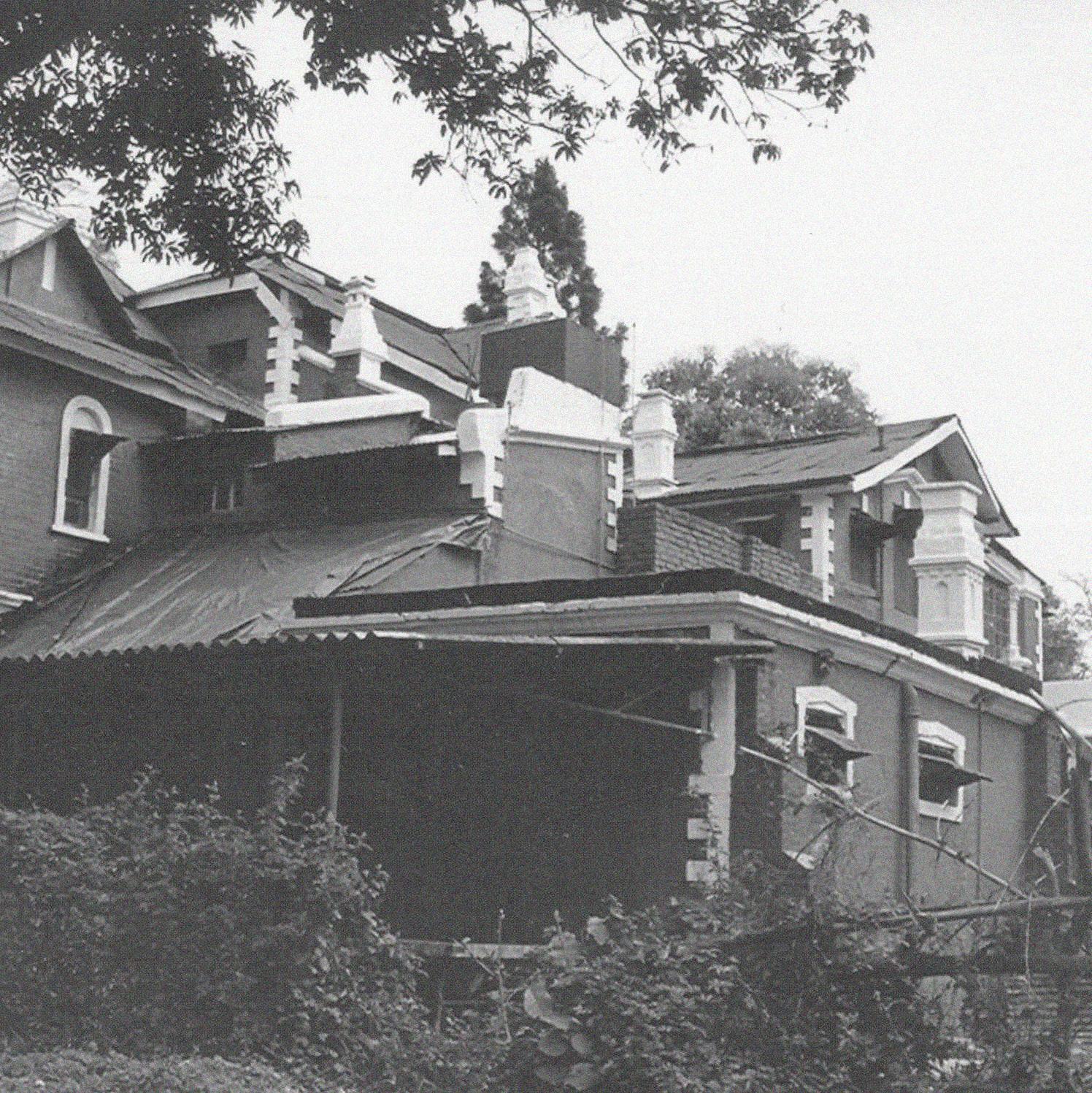
Inside the school estate, the relations between members of all communities have been on the same basis as that on which our tradition has been founded and this was brought to a climax in the unity in which Gandhi Jayanti was celebrated on October 2nd.
We are now waiting in confidence for the return of normal conditions in the city. This will depend very much on the continuance of firm action by the Government in preserving law and order and security of life and property, and equally on the work or Congressmen in forming peace committees and in showing an anxiety to bring back moslems to their old places.
42 Disturbances
a.e. foot 42
chestnut house from The Doon School Archives
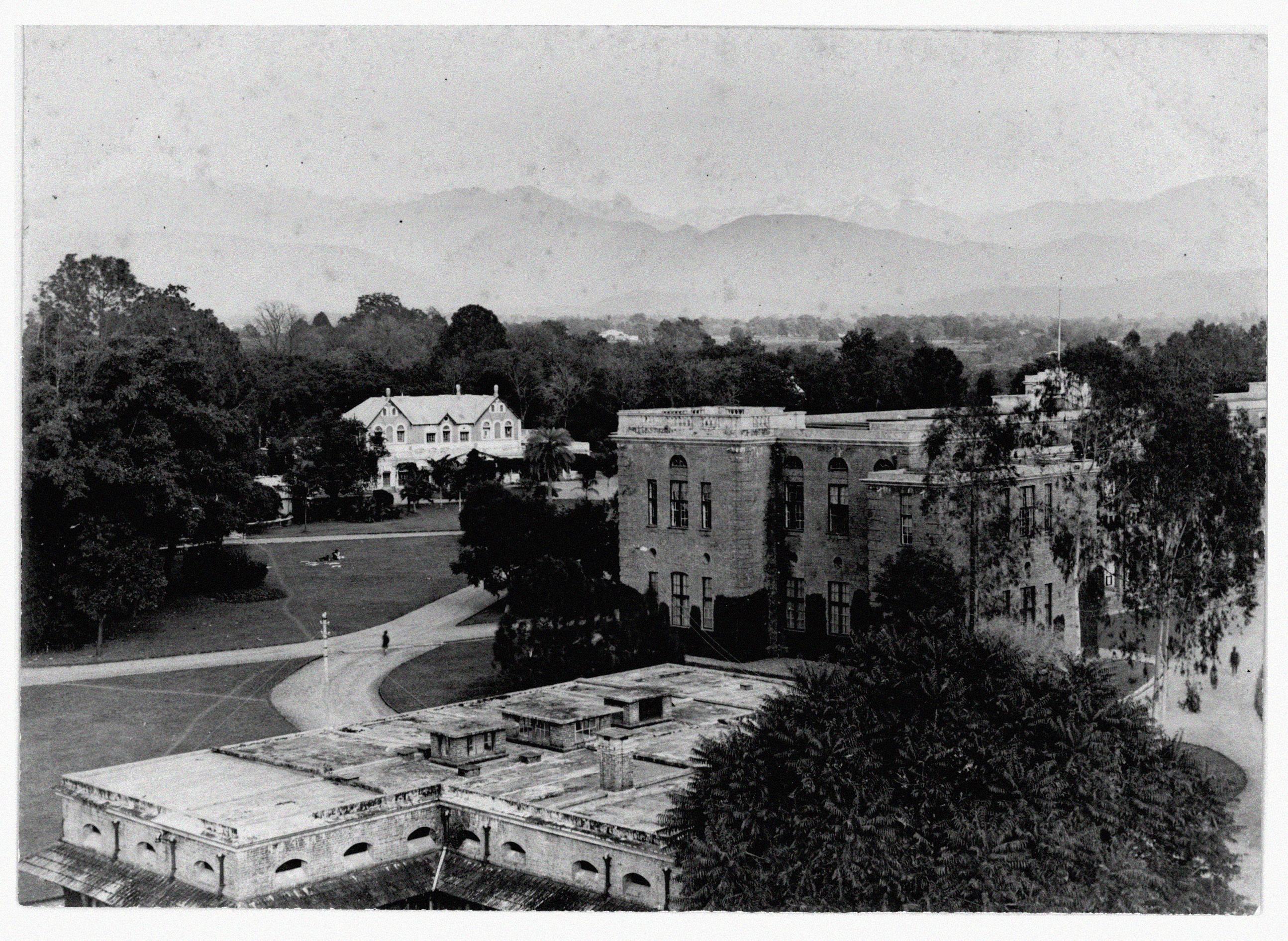
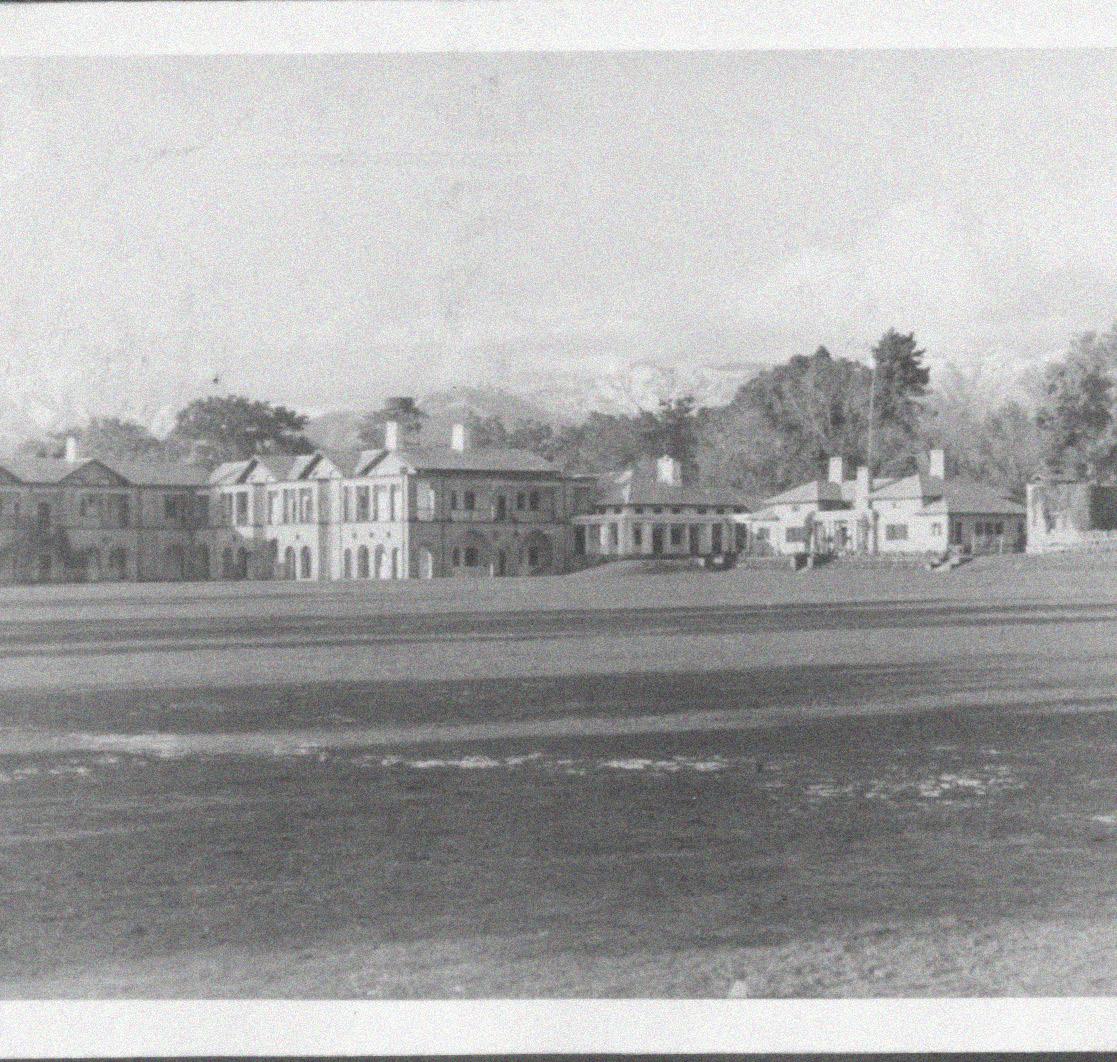
43 43
hyderabad house from The Doon School Archives
tata villa behind the main building from The Doon School Archives
University of Massachusetts Amherst
Vijay Prashad (ex 346 T, ‘85), is the Chief Editor of LeftWord Books, and a senior fellow at Renmin University of China. As a Marxist, he is the founder of the Forum of Indian Leftists (FOIL). He argues that leftists should have a long-term view of social struggle rather than focusing on shortterm results, and is an outspoken critic of what he calls American hegemony and imperialism.
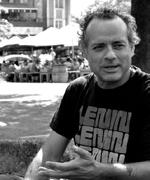
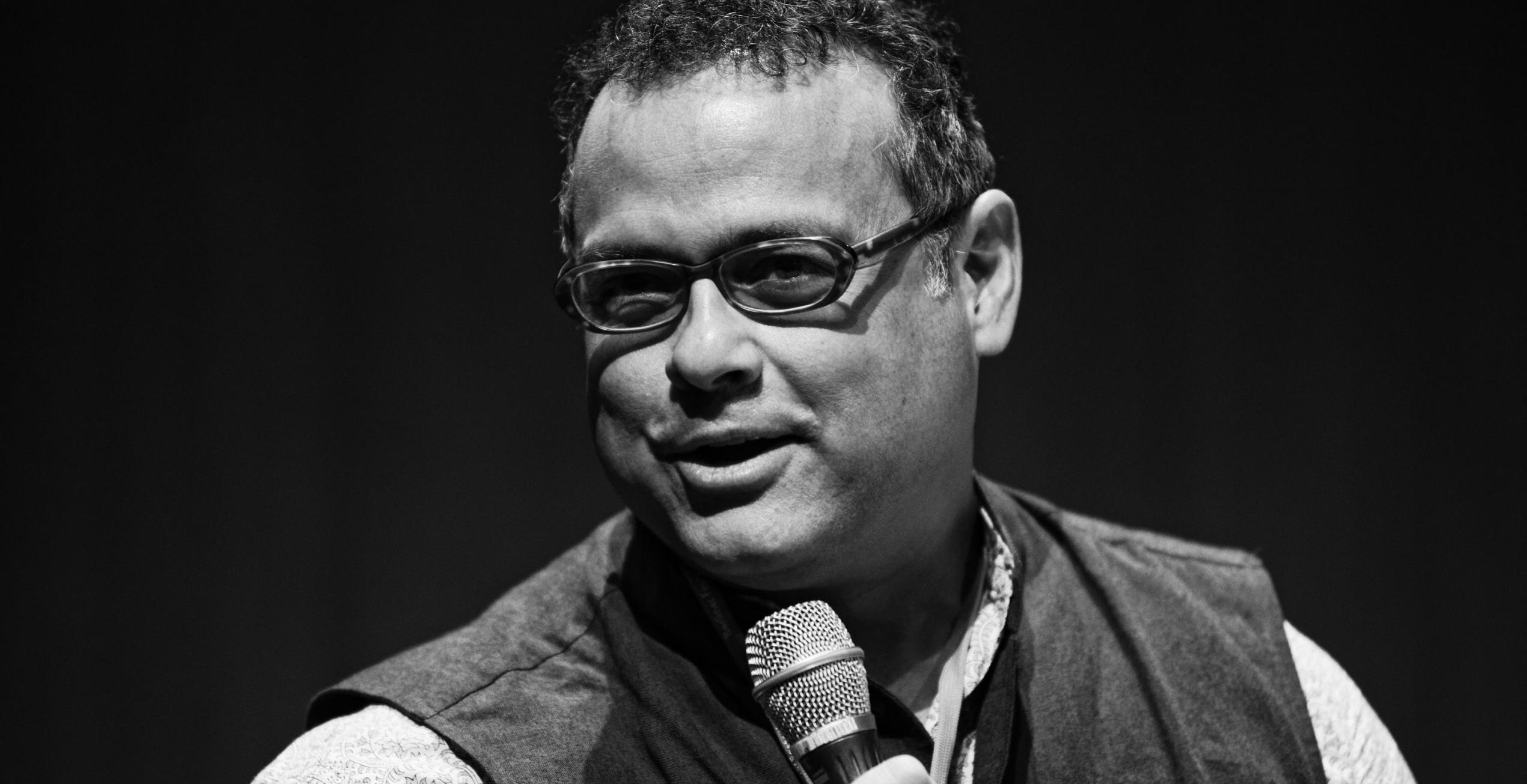
What/who inspired you to become a historian?
The pogrom against Sikhs in 1984 rattled me. To think that such violence could emanate from the silence of our society and that it could destroy lives for generations harmed my sense of ease as an Indian. It forced me to acknowledge the terrible bigotry that slumbers in our society, the general feelings against Muslims that had grown after Partition and the wretchedness of caste and patriarchy that suffocated so many people in India. How does one better understand this kind of violence, rooted in bigotry, other than to go back and look at the history of our society and our culture? I was interested in the simple idea: who killed the Sikhs? Rumours spread that the killers were Dalits, which confused me: why would an oppressed community participate in such violence? I started work as a journalist but then realised that I needed the time to collect stories about the history of communities whose own history had been buried beneath official narratives. That meant looking at the long history of the Balmiki community, a Dalit community of Northern India that had been mainly an agricultural community but had been hired largely into the sanitation service (and was blamed in the rumours for the violence of 1984). I travelled across northern India, from Punjab to central U.P., met thousands of Balmikis, lived in Balmiki communities from Jalandhar to Meerut and developed a compassionate history of a community that continues to struggle for freedom. Rumours were easy to dispel, since the role of a few Balmikis in the violence of 1984 hardly defined their lives. It was harder to learn about the great history of struggle of this community, whose history I eventually published in 1999 as Untouchable Freedom (which will be republished by LeftWord this year with a foreword by Suraj Yengde). This was my apprenticeship into history writing.
Where do you find resources for your writing and how do you sift through misinformation and propaganda?
A recent issue of Le Monde Diplomatique has an essay by the editor Serge Halimi, in which he writes of “true but unwelcome news”. News has to be developed through a range of methods: talking to people who are involved in the events to be written about, reading the history of what provoked the event or the process, seeing the event as part of a process and not a static issue, trying to come to terms with the kaleidoscopic nature of story-telling (namely, many people have many opinions), and finally, doing my best to shy away from taking the powerful at their word. It is not an easy task. Scepticism affords some protection from becoming a spokesperson for the powerful.
dv ON 27.09.22*
INTERVIEW WITH VIJAY PRASHAD
You have been to Cuba and must be well acquainted with Cuban democracy. How does it operate and how is it different from the stereotypical Western liberal democracy?
The Cuban Revolution has developed a form of democracy that needs to be taken seriously at a time when liberal democracy – in the United States of America as much as in India – has been corrupted by money power. The ordinary citizen in a liberal democracy finds it very hard to make their voice heard, whether at the ballot box or in the halls of power; this is perhaps one reason for the emergence of the Age of Anger, the time when people are just angry because their voices cannot be heard otherwise. In Cuba, every street is organised into a unit, and then every unit has representatives for each neighbourhood, and each neighbourhood has a representative to a larger territory and so on. If a citizen has a problem, they go straight to the local street representative and urge them either to find the resources to solve a problem or to fight to change a policy. This kind of direct, socialist democracy means that when a hurricane strikes the island, the entire population is organised to deal with it (unlike in Puerto Rico, a USA colony, where liberal democracy has driven the people into calamity after calamity). We have to study the idea of direct, socialist democracy and see if any of these aspects are worthy of emulation in a society as large as India. There is a little of this in Kerala, where the society is organised to confront the dilemmas of humanity rather than in a competitive, dog-eat-dog way that affords only individual advancement and not social development.
Having read your Washington Bullets, one wonders how the USA gets away with such grave offences and still maintains its image as the "Arsenal of Democracy". What is your take on it?
There are many ways in which the USA's power has become more and more fragile. The USA's economic and financial dominance is now waning. But the USA continues to have a hegemonic role in terms of information systems, both regarding the physical infrastructure for the passage of information (the internet, the various apps, CNN) but also in terms of the ideology of information (what is believed). That hegemony over ideology allows the USA to continue to say, for instance, that it is the home of democracy, when the question must be asked: how can you be a democracy if more than 34 million people – including nine million children – struggle with hunger in the United States of America? Gandhi once said: the test of civilisation of a country is not the number of millionaires it has but the absence of starvation amongst the masses. This is a good test. But the ideological suffocation means that this test is never applied to the United States of America. And then, the way in which other media outlets are disparaged on the internet – called government outlets (but the BBC is not given that name) – and their dissenting views are treated as disinformation. They are very clever to have managed the dissemination of information in this way.
With reference to China in its current state, do you think that China has betrayed its original Maoist thought by developing such strong capitalist relations?
All socialist revolutions took place in very poor countries, from the sprawling lands of the Tsarist Empire to the Vietnamese (1945), Chinese (1949), and Cuban (1959) Revolutions. These poor countries had to establish their sovereignty against imperial conquest and then they had to build up their social wealth to improve the dignity of their populations. This meant that the socialist processes in these countries had to be experimental, working in and around building up the productive forces, sometimes loosening the reins for private enterprise. I’m not sure that the word ‘betrayal’ is useful. Far better to take a pragmatic attitude. Has the Chinese Revolution been able to advance the dilemmas of humanity in their country? Yes, indeed. China eradicated absolute poverty and built up the social wealth of the country; all of which, has now enabled it to produce remarkable social goods. This has not been the case with India, which has seen a rapid growth rate and the emergence of a very confident wealthy class, but at the same time has a population marinating in the wretched hierarchies of caste and class, and suffering the indignity of hunger.
45
Continued on page 47. 45
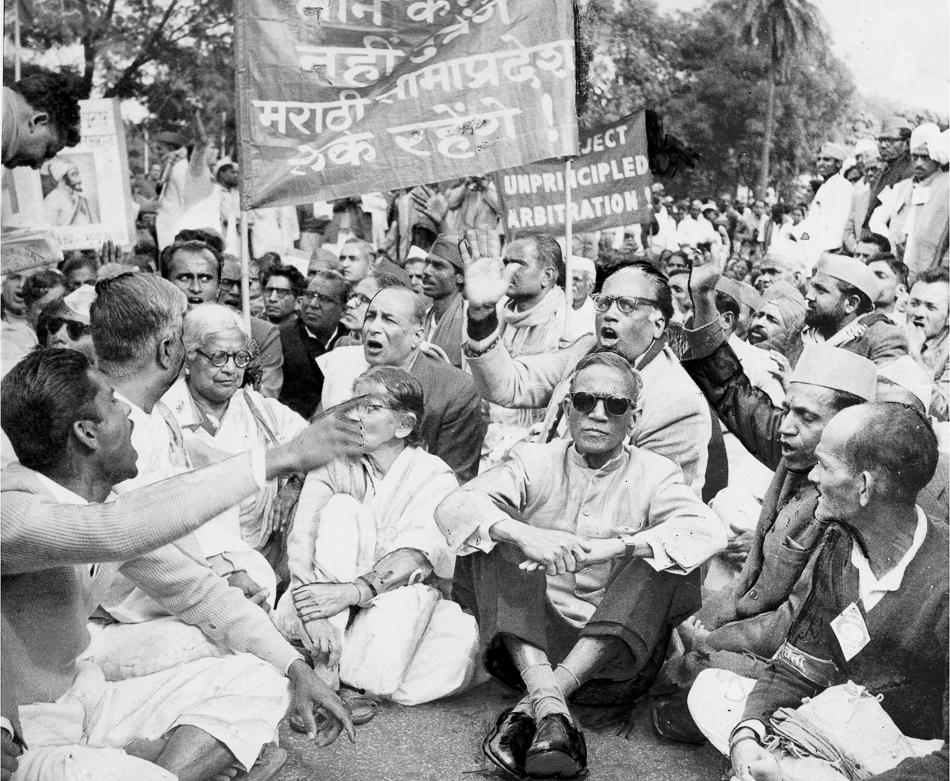
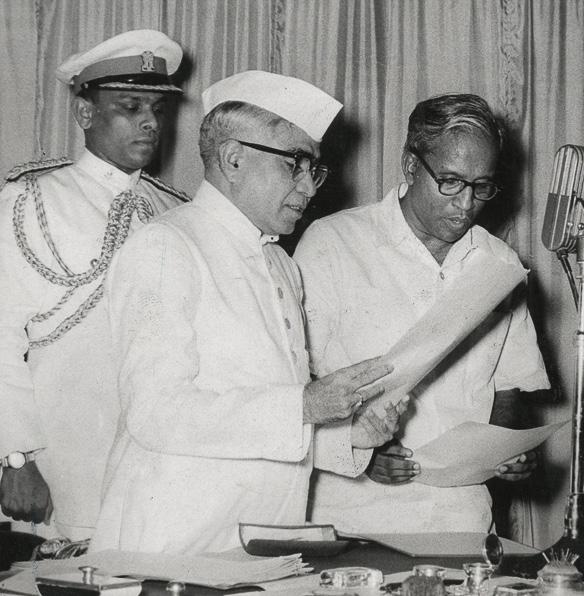 Tricontinental: Members of the 'Samyukta Maharashtra Samiti' headed by communist leader, SS Mirajkar (third from right, wearing dark glasses), who was then the Mayor of Bombay, demonstrating before the Parliament House in New Delhi, 1958.
The Hindu Archives.
Tricontinental: EMS Namboodiripad (right) taking oath as the first Chief Minister of Kerala. Thiruvananthapuram, April 5, 1957.
Rajan Poduval The Hindu Archives.
Tricontinental: Members of the 'Samyukta Maharashtra Samiti' headed by communist leader, SS Mirajkar (third from right, wearing dark glasses), who was then the Mayor of Bombay, demonstrating before the Parliament House in New Delhi, 1958.
The Hindu Archives.
Tricontinental: EMS Namboodiripad (right) taking oath as the first Chief Minister of Kerala. Thiruvananthapuram, April 5, 1957.
Rajan Poduval The Hindu Archives.
46
Looking into matters closer to home, do you think it makes sense for India to hold on to the colonial legacy by remaining a part of the Commonwealth?
When Ireland became a republic, it left the Commonwealth. That was in 1949. Why did India remain in the Commonwealth after it became a republic the next year? This is mystifying to me. Part of the reason might be that India wanted to exercise its leadership role in the emerging non-aligned world through the Commonwealth as well as the United Nations (which had just been formed in 1948). But nowadays, the Commonwealth is a useless body. Many smaller states have become republics and have left it. Why India remains is perhaps for habitual reasons.
Where do you think the Indian socialist movement failed, from the CPI being the second largest party in the first Lok Sabha elections to the current state where it has neither been able to counter neo-fascism nor gain much presence in Parliament? What course of action do you think the Indian Left needs to take to revive itself?
The Indian Left can only be as powerful as the organised capacity and confidence of the Indian working class and the peasantry. The Left parties, themselves, are not able to move an agenda since they must rely not on money power but on the power of the masses. If the masses are disorganised and if they lack confidence, then there is no possibility of the masses being able to drive an agenda that emerges from their own political needs. The Indian Left has spent its limited energy to build that capacity and confidence, which sometimes appears in the public as with the farmers’ revolt, which had many authors, one of them being the Indian Left mass organisations. There is only one state in India, Kerala, where the Indian Left has been able to convert its mass work into electoral power and has maintained that dynamic. In West Bengal and Tripura, the Left was not able to break the shackles imposed on society by the social effects of liberalisation (the deterioration of organised labour, the commodification of social life), whereas in Kerala, with the 'People’s Plan Campaign', and with the rise of mass organisations in everyday life, the Left was able to make itself key to the liberalised landscape. The Left has many challenges before it, but the principal challenge continues to be the one that was on the table in the 19th century: to build the capacity and confidence of the working class and the peasantry. It’s not an easy job to do in the context of the consolidation of neo-fascism. But it is an essential and vital task.
Continued from page 45. 47
In West Bengal and Tripura, the Left was not able to break the shackles imposed on society by the social effects of liberalisation...
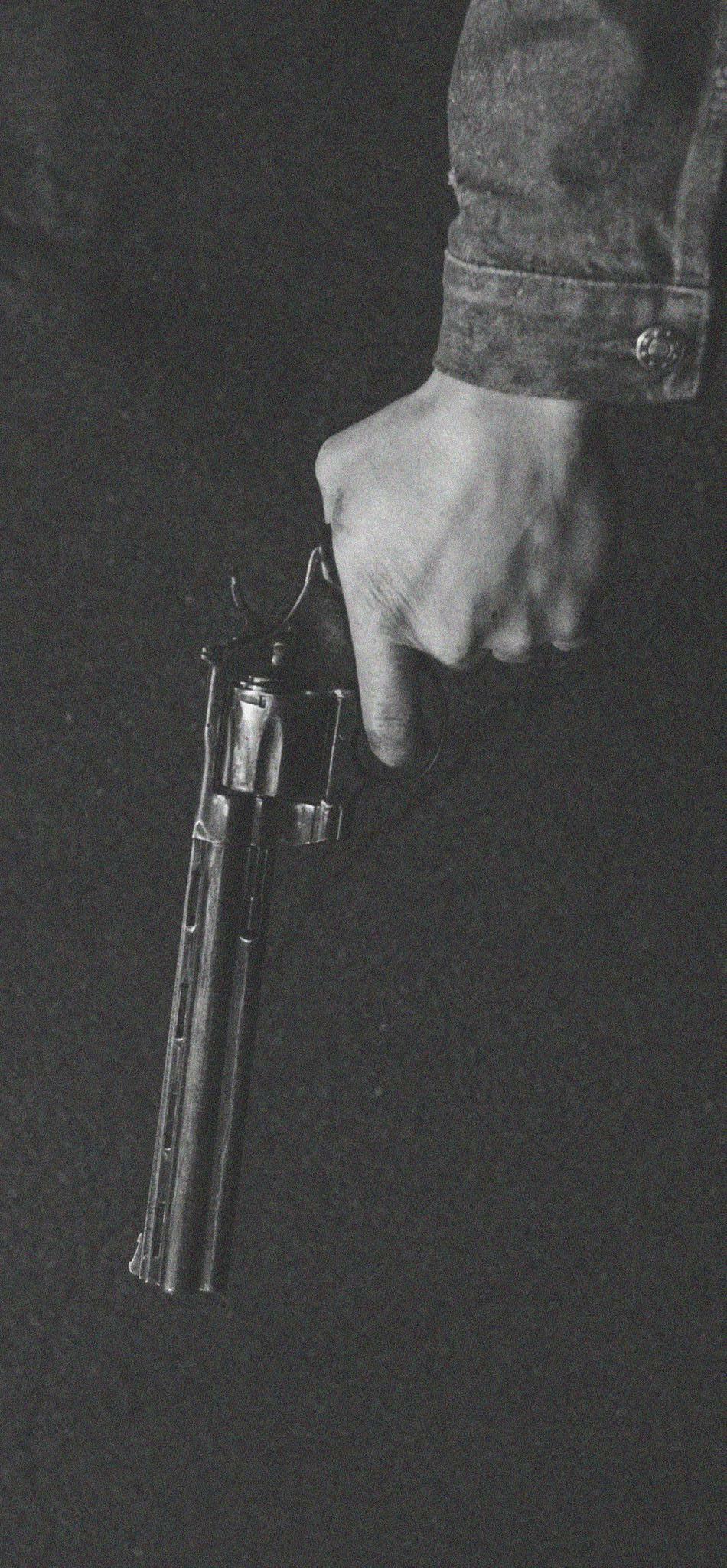
Fiction from 48 —58 Reuters
The Round Table
Prologue: The tradition of The Round Table traces back to the days of King Arthur and his knights. The shape of the table dictates that each member sitting on the oakwood seats shares equal power in contributing to the matter at hand. There is no head, all are equal.
Permanent members of The Round Table meeting consist of Jesus, Buddha, Muhammed and Krishna. These religious leaders usually meet once every decade, whenever the wooden bridge loses one of its parts. An ethereal rendezvous to talk about the times — nothing more, nothing less.
A land where the clouds never reach, a place that time cannot breach; an ancient castle placed on the pedestal of the universe, kept steady by a wooden bridge that stretches into the abyss, engraved with the letters ‘HTIAF’. The sky remains dark, yet the crimson sun shines through the window. The Room, left weary by the ruthless passing of time, fixes itself up in the hope that its old occupants would instil a sense of purpose into it again. A glass table sits in the centre of the room, an alarming contrast to its surroundings — bold, brave, and most distinctly, stainless. A testament to the power of the words that may flow across it. Below it, an infinite drop into a place where the physics of time and space actually makes sense. So how did we end up here? Why are we here? Is this one of those Egyptian afterlife dreams? They say the more you know, the more you know you don’t know. However, one thing we do know for certain — we have arrived at The Round Table
Meetings are rare these days for the bridge is generally in good condition, however recent disasters on Earth have prompted an emergency meeting.
Four gentle beings sit around the transparent table with their mobile phones tucked away in their velvet pockets. The anticipation of discourse fills the evening air with a heightened sense of purpose. “To what do I owe this meeting?”, Jesus sighed, scratching his beard.
After a brief pause, and quite ironically, Buddha breaks the silence, “All these children stuck on their gadgets the entire day, have they no sense of reality? You know, when we were young we’d sit under a peepal tree, trying to bear the fruit of life’s sentience. They don’t have the same thirst for knowledge, nor do they care about discovering the truth of the Universe. Anyway, that’s a matter for another day. The people have turned on each other with chemical wars, cancel culture, religion-" “Religion? You must be joking right?” said Krishna, with a puzzled look on his face. “That was created to
unite people, not divide them, to serve as a common ground for the masses. So what is the problem, and by the way, what year is it?”
Buddha replied, “2030, you see, we occupied the same land centuries ago. There was a king and his kingdom but at society’s core was a simple man who wanted to find his purpose, not bothered with what others thought or preached. I had faith in the knowledge I attained, and not the other way around. To me, that was the essence of my teachings. It was never a tool to get ahead of others, it was just my way of life. Today, our men and women are deeply confused. They have institutions like the UN; they have progressed in the field of science and technology; they outwardly portray that they are more tolerant and inclusive than ever before; yet, they fight over the petty differences in their lifestyle. I wish they would build schools and hospitals instead of building statues of us.”
“Does anyone have a dictionary?” asked Krishna. “I need to check the definition of religion. It has evidently caused a great deal of fuss throughout history, and I feel we need to get a few things straight." Muhammed stretched across The Round Table to open a drawer. He flipped through the pages hoping to find something meaningful.
“Here it is — Religion: The belief in and worship of a superhuman controlling power, especially a personal God or gods. The purpose of religion is to attain salvation for oneself.” After a moment of deliberation and fixed stares at the world below, Buddha added, “Look at them, all confused, they ask us for blessings in the morning and then commit unjust acts of violence in the evening, more often than not, ‘in the name of God’— it’s almost laughable." “Is this our fault? Did we do something wrong?” asked Jesus. Muhammed replied, “A lie becomes the truth when enough people believe in it. Time has twisted our teachings in more ways than you could ever imagine. In my eyes, Religion is a white canvas painted by nature, but it can take shape through many forms and colours, some more appealing to you, while others to me. But, the people use this subjectivity as a means to spread hate and draw needless comparisons. Terrorism in the name of Jihad, razing temples and mosques to the ground over ancient land disputes, and shooting innocent school children with guns. You can believe in whatever and whoever you
Continued on the next page.
fiction
arjun
prakash
an ethereal rendezvous to talk about the times — nothing more, nothing less.
49
want but the idea of human rights is a universal truth that should not be sacrificed at the hands of religious or political zeal.”
“Four of us are sitting together, talking about the state of the world, while the people are fighting over their food preferences as if it were the Holy Crusades all over again, only about pork this time”, said Jesus with a slight grin on his face. Krishna replied, “Food is a controversial topic so let’s stray away from that. But religion, hilarious. Little do they know that we are watching over their antics together. Most of history’s bloody wars have spawned from religious extremism, where people see radical measures as necessary to fulfilling their God’s wishes. Each of us had our teachings stemming from different belief systems, but when there is conflict to try and prove which one is better, or ‘who’ the greater figure is, religion loses its purpose. From being something you could use to improve as a person, it has become ‘something to prove’ to a person.” “We may have had some minor disagreements in the past but I cannot disagree with you there”, said Muhammed, nodding his head in approval. “Neither can I”, added Jesus. “My prayer landline has been rather busy these days so I better get going.” The four gentlemen rise to shake each other's hands and then collectively leave The Room with an intent to correct this in some way. With that, the meeting concludes.
The crimson sun swallows the horizon and the sky turns brighter. The letters engraved on the wooden bridge suddenly change their order, it now reads ‘FAITH’. Faith is strong but the people continue to punish themselves in the eyes of their Lord. The Round Table is deserted once again, but its status as a universal symbol of equality continues to attract the wiser powers of this world. Where there is an eye for an eye, there are no heads. It is a pity that people can’t see this bigger picture, for the world would be a better place if they could.
The very first death on your watch isn’t even your fault, but you always remember it. The scary silence sticks around longer than you’d expect. You’re just one of the numerous interns who rush to the side when the alarm is sounding, peering at the doctors frantically crowding around. As the patient weakly gasps and chokes, you too gasp and choke as each electric shock blasts through the body. The doctors are grim-faced but determined, yet the feeling of helplessness is contagious. You desperately wonder why they bother. Again and again, the voltage is increased, but even the thunderbolts can only do so much. The solemn doctor, holding the paddles, slowly turns away from the flaccid flesh and another silently inquires, “Time of death?” You back away, feeling as if the defibrillator was actually meant for you as your heart pounds out of your chest. A devastated father takes your wrist. “Time of death?” he mutters, thinking you are a doctor, someone who tried his best to revive his beloved son, someone who knew exactly what he was doing, someone able to challenge death. Neither an inexperienced first-year intern who never could memorise which number was systolic for blood pressure, nor someone who couldn't even draw blood from a patient for a blood test.
“I’m extremely sorry for your loss,” you mumble, telling him that he can talk to the doctors in a minute. He bites his quivering lip and nods, releasing the scrubs that you shouldn’t be wearing, the scrubs reserved for those who save lives, not for those who don’t even know how to tenderly break the news of the death of a loved one.
The third death is similar, only this time you’ve been dragged along for menial scut work. You’re the one slamming your hands into the sternum, trying to force the fluttering heartbeat into your rhythm. You’re the one leaping out of the way of the cold defibrillator paddles, leaping back to start compressions again and again. The patient bottoms out, but after the paddles thunder the last time, you can feel the steady thump of the heart, matching yours as you collapse against the wall, arms shaking with strain. The immense emotion you feel cannot be comprehended as you shudder with
Continued on the
fiction
Time of Death yashovat nandan they're unwilling to bear any pain while their baby boy wheezes...
next page. Continued from the previous page. 50
Continued from the previous page.
relief. You brought him back. You saved him. You.
The eighteenth death is the hardest. That baby in premature care should never have been compelled to live on machines. Each breath is a fight, and the medications are flowing in a toxic concentration for such a little body, yet the parents insist on continuing the farce of life. They’re unwilling to bear any pain while their baby boy wheezes and flails weakly, seeking comfort but receiving only the hard embrace of the hospital walls and the noise of machines.
The mother cries, “He’s blue! Do something!” you rush to the crib and motion the team away, beckoning to the mother and father.
“It would be best to take him off the machine,” you say.
The dad glares and blurts out, “You want us to lose him.”
Sadly, as though their grief has formed a barrier, they turn a blind eye as they don’t understand the torture they have put him through. “If he even survives a year, he will be severely physically and mentally disabled. For life,” I persist.
The mother groans, “He’s blue! It doesn't matter. Just save him! Now!”
You signal the emergency team, moving yourselves around the tiny crib and pulling off the oxygen mask, trying to fit your big palms against the baby with his face scrunched up in a silent wail. The drugs to restart his heart aren’t having any effect due to the amount of medication already flowing through his tiny body.
“Use the shocker!” the mother wails.
“That's impossible!” you snarl, trying to give compressions to a feeble chest and an even weaker heart. “Your baby is too small and his heart is deformed! If we do, we’ll kill him!”
The emergency code leader shakes his head. “Time of
death ….”
“3:36 p.m.”
The thirty-third death, some would argue, was the worst. You’re the one leading. If an emergency is called, you will control the defibrillator, and intrepidly call out “Clear!” You have the ultimate say on the time of death should it occur. No, you won’t let those fateful words pass your lips.
But she smiles at you through her white hair. “I’m ready to move on. Are you ready to let me go?”
You sob and throw away the clipboard. “No, Mom! I don’t want you to.”
She still has that tender smile of years past as her body wanes and shrivels to a mere fraction of her vitality. “But it’s necessary. I need you to. And you know it.”
“Mom ….”
And she brushes her hand against yours, squeezing it once before closing her eyes. “You’re ready.”
You take one last glimpse at her lifeless body, then note: “Time of death: 9:12 a.m….”
The third death is similar, only this time you’ve been dragged along for menial scut work. You’re the one slamming your hands into the sternum, trying to force the fluttering heartbeat into your rhythm.
51
A Reversal of Fortune
armaan verma, ex 465 k, '19 the minds of men often mirror traces of the land.
Never had the party of Pashtun villagers seen a grown man cry so passionately.
They stared at him in shock. A few looked away, uncertain of what to say or what to think of him, speaking to the mountains under their breath.
The object of their gaze was one Corporal George Boswell. He had been hugging his tear-soaked knees and rocking himself for the past fifteen minutes, and the Pashtuns had only watched him. A few feet from him, his horse lay dead. Exhaustion, perhaps. No blood. Soon enough, George began to wheeze. His hair was soiled, his uniform torn, and his general demeanour altogether uninspiring. Of all the villagers, the two Pashtun headmen glanced at each other and then ordered the others to hoist George up onto their mule.
The Pashtuns resumed their journey back to Kabul, which George had taken such great pains to leave behind. The white man’s bawling irritated them so much at times that they would begin shouting aloud bits of their tribal philosophies to drown it out — "the apples have been counted even when the night is dark" or "if you draw lines on the ground, you will be in debt".
The way was dusty and the road scarcely visible. Only the Pashtuns could make out the phantom of the path and salute mountains as they passed them, as generations before them had done in Afghanistan.
George only saw snow and rock. The cold in this country rattled him; Derbyshire was different — the cold there didn’t seep into his clothes or turn his teeth to glass.
As the memory faded, his tearful dejection was reduced to sniffling. It wasn’t like him to weep so unabashedly; it was unusual, or so he told himself. Snowy peaks encircled the party, much like Afghans attempted to do in battle. The minds of men often mirror traces of the land. When the villagers and the mules stopped to rest in silence, George imagined hearing the weary marching of Major General Elphinstone’s column many miles away.
George mustered his Dari (he did not know Pashto) to address the headman, whose loosely tied turban concealed part of his face. "Where are you taking me?"
"Into the arms of the Barakzai," came the sullen response.
George was aghast. "I have done nothing to wrong you!"
The man did not respond and fell in line with the steps of his kin.
"We were right about you Pashtuns—even after all
my time in Afghanistan, it surprises me that you are so heartless!" George sputtered to nobody in particular. "Wrong, farangi, we are poor."
George could feel his gall rising like a bitter cud in his throat at the man's laconic impassivity. He scoffed. Poor! English officers would gather together late into the night and often speak their heart’s content about the treachery of the Afghans. Poor — no such thing. Traitors. Turncoats. Bandits. Never trust an Afghan. The way they were betrayed at Kabul! The thought stirred such a tempest in his heart that he abruptly began to thrash about to dismount the mule and outrun the Pashtuns.
So far they had let him be, even tolerating what they took to be effeminate misery. Now that he resisted them, they pounced on him like lions, kicking and spitting on him as he cried out for them to stop.
At dusk, they set up camp. While his hands and feet were bound with rope, George’s captors huddled around a hastily made fire. When the silence grew too long, one of the headmen began to tell a story about a wrestling champion.
"The man was unchallenged throughout the land. He taught many youngsters, and to his favourite, he taught all the tricks he knew, except one. But this favoured student then boasted to the Amir of the land that he was the strongest wrestler alive. The Amir’s face darkened; he was unimpressed by this brashness and ordered a match between teacher and pupil. The teacher won splendidly with the one move he hadn’t taught his student. It was a magnificent match. When the loser protested to the Amir that it was cunning and not strength that had decided the day, the Amir replied that it was for such a day that tricks are kept secret. The teacher chimed in, there is no such thing as loyalty, there are limits to every friendship." The headman telling the tale paused, then pointing at George, exclaimed, "Behold, the student."
In his dreams, George saw mud-plastered faces and pink snow. He heard the breathlessness of the horses and the groaning of the mountains. They were not too far into the country and still within sight of the Bala Hisaar of Kabul. It had been that quick for the savages to lose themselves upon his regiment. The screeches of the jezail from the mountaintops had shaken the column of soldiers, their families, and camp followers. A shamefully cheap firearm blew cavities into officers
Continued on page 54.
fiction
52
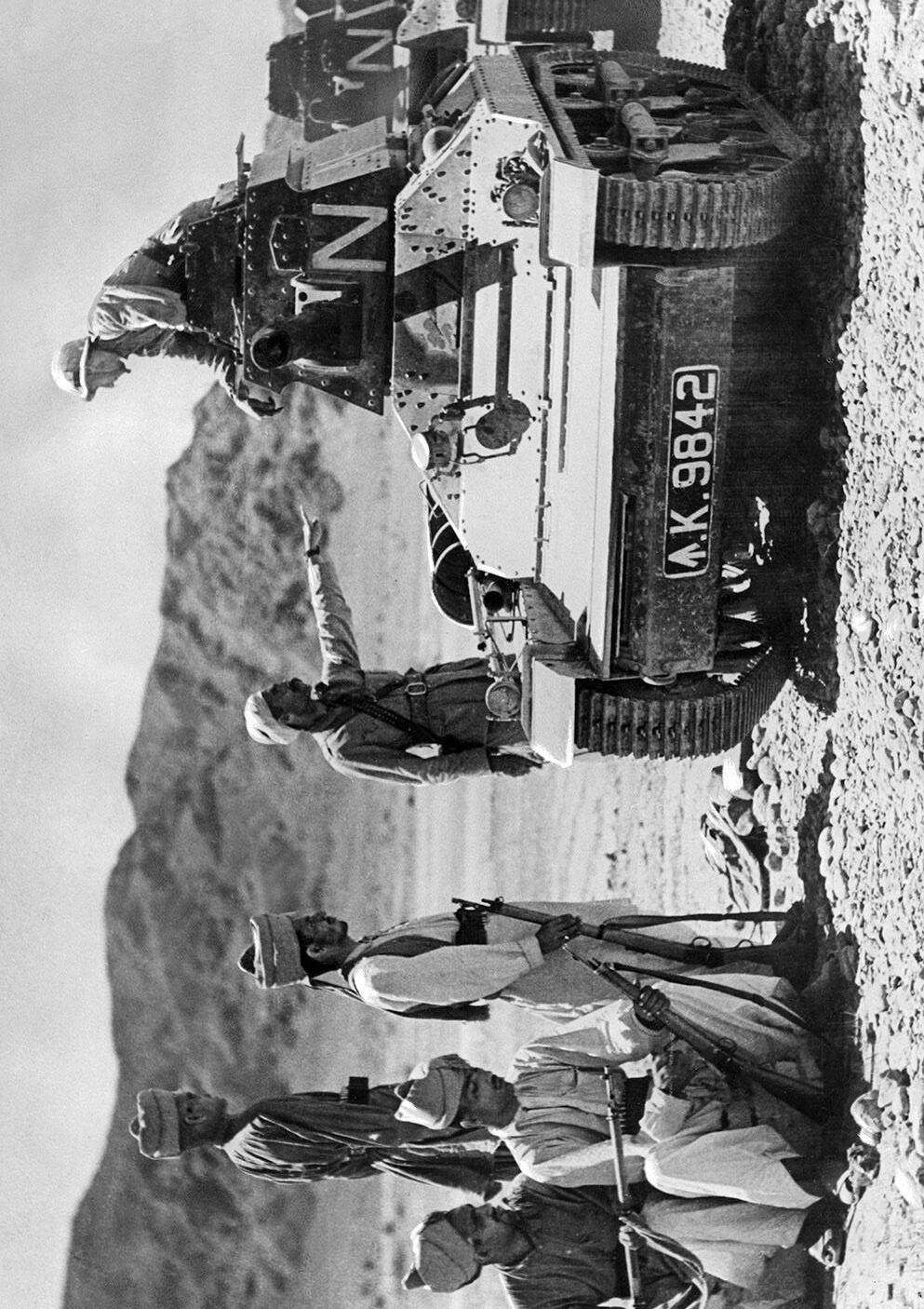
In his dreams, George saw mudplastered faces and pink snow. Bloomberg
Continued
of the highest pedigree. George was somewhere in the mess, neck craning to spot the attackers.
He saw the Ghilzai. Their long, jet-black beards and angelic white turbans obscured the faces that had watched over the passes to Hindustan for centuries. They charged and then disappeared like gun smoke, hell-bent to ensure the column would never reach the safety of Jalalabad. It was dark. It was misty. And suddenly, with the flashes of furious jezails, it was blindingly bright once again. His fellows, their faces morphed into bears in his dream, fell under their fire, and the panicked horses of dead Afghans trampled many more. One would have trampled him, too, had he not managed to wrestle control of the reins…
When he awoke, just after dawn had set the snow on fire, he saw the headmen talking to three men on horseback.
The headmen came over to George. The horsemen, meanwhile, remained silent spectators.
They delivered the news. There had been a massacre at Gandamak.
Akbar Khan had struck like lightning, the headmen told him. Of course, he had. The people of Afghanistan had complete faith in their prince, and his father, the Barakzai. Perhaps not all the tribes, but enough Pashtuns to stir up a cloud of dust in the desert, the kind of clouds that scattered men; surely better the Barakzai than a pair of English buttocks on the Amir’s throne. Yusufzai, Durrani, Afridi, Popalzai, Orakzai, and Sherani — all were present when Kabul had risen up in revolt.
"The Barakzai will pay well for a farangi prisoner."
"The Barakzai is not interested in men like me," George retorted.
"These riders are rounding up men of white skin. They will like one so well-decorated."
George cursed his captors for recognizing his corporal’s insignia. The 44th Foot uniform that he wore was faded now, beaten by the elements, no less the elements of Afghanistan. Perhaps an Indian sepoy’s uniform would have kept him hidden. The Indian regiments would have been spared the ire of the Afghans, the Native Infantry and the Bengal Horse and all that. Of course, there was also the question of ransom: the Company would never ransom Indian troops. They would certainly perish. He knew it, they knew it, and their families knew it. White skin is well-paid for. And why shouldn’t it be?
The anger and desperation began to boil within him in a perilous broth. These Pashtuns and their incessant gravitation to cruelty confounded him. And to call him the infidel! He also cared little for men like Bokhara Burnes, who were pointlessly fascinated
by this wretched part of the world. This was why his time garrisoned in the towns of Hindustan had been so much more pleasant. The Indian native was a far more obedient subordinate, he had observed. The East India Company would control India for ages to come, he knew, simply because she enjoyed being controlled. But then, between Calcutta’s marshes and these mountain passes, was an Englishman’s demise.
The very thought made George want to weep. This country was turning him into a eunuch.
Somehow, his mind continued to wander even as the shadows of the horses stretched out over him. He found two firm Afghan hands hoisting him up and dragging him towards the riders. His final moments approached him, he knew. George began to thrash about, chafing his hands against the rope until they bled, and letting loose profanities in English, Dari, and Hindustani.
The villagers had to stop and try to calm him like they would a terrified horse. In all his desperate resistance, he had his eyes squeezed shut, and did not seem to notice when the arms that held him suddenly fell limp.
When he stumbled to the ground from his own force and his eyelids flew open, he saw the bodies of two Pashtuns writhing in Roman fountains of blood. Behind them, through the dust, he saw the red spears of the horsemen tear through the headmen’s turbans. In under a minute, the whole party of Afghans was carrion.
George squinted. How could he have not seen? They were the Qizilbash, armed to the teeth and carrying soil from all over the world under their toenails. Of all the factions in this wasteland, George hated these Shi’i Turks the least. Like all Mossalmans, they too were fickle in their allegiances, sometimes fighting for the Company and sometimes for the tribes, but they had about them an air of distance as if they swapped loyalties not out of spite or greed but out of wisdom.
And on that day, he supposed, they were deserters from the Company’s army.
The Qizilbash rode around him in dusty circles like unsure lions assessing their cornered quarry. They conversed with him in their broken Dari. George’s pronunciation suddenly become eloquent as if his erstwhile terror had been accumulated in his throat and was now being regurgitated out of his system.
"Your brothers were butchered at Gandamak, kafir, and with them the Indians,"
So, it was true. "How many left?" he asked, his voice hoarse.
"None." George felt a sudden weight drop onto his
Continued on the next
page.
from page 52. 54
knees. Was the sky becoming heavier? They talked of battles and marching routes a little longer, and it took the Qizilbash astonishingly few words to describe the massacre of the Major General’s men and their families, now strewn across the passes of the Hindu Kush. In the end, they giggled at their own jokes as they plundered the villagers’ corpses, and said that if they were to take him along, they would have to circumcise him. But George had not asked for their help. He knew that in times of war, the deserter’s load was light.
He watched them ride away with their crimson headwear marking the horizon against the backdrop of barren land. He stared at the wraiths of their figures still visible where they had receded, or perhaps that was the snow playing tricks on his mind — the same snow into which a column of sixteen thousand men, women, and children were slowly sinking. The sobbing, despairing, horseless George Boswell seemed almost like a ghost from the past, and a weary, phlegmatic George Boswell now mulled over the route he should take. Suddenly, the cold began to bite him, and his exhaustion lay heavy on his shoulders. He wasted no time in stripping what remained from the corpses and wrapped his hands and face in layers upon layers of cloth, so that he looked like a mummified kind of Pashtun.
He began the journey to what he thought was Jalalabad with a sigh that heaved across the mountains.
In the numbing cold, his thoughts feverishly drifted to Derbyshire. He recalled the chilly breath of the forests he had ventured into as a boy, all of which were once Kingswood, the slivers of sunlight slipping through the canopy as if they were fairies. He thought of the first gunsmith he had come across when his family moved to Derby. Less than two streets down, there had been a lass — pretty in an ordinary way, he thought. He had seen her small lips purse slightly while she came out to the markets. Perhaps when he returned, he would marry her. After returning from the sultry pleasure houses of the East, it would be difficult to find an English pitcher for his thirst, but he would make do with those pink lips, which were forever pursed in public.
He let out a sudden laugh. All the pursed lips in Afghanistan concealed themselves behind niqabs, yet they tasted so much better.
His retreat from the mountains had been fortuitous because he knew from the relatively flat land before him that he had fled correctly in the direction of Jalalabad. The city itself was perhaps some ten miles away. George only knew he was heading in a general north-easterly direction. Soon enough, the cold began to eat away at him, staggering his pace and making his breathing wheezy. He continued to walk. If he stopped, he was dead.
Step by brutal step, the tallest of mountains receded away from him. The ground was more even now. He
walked miles without realising it as delirium took hold of him, and he began to see the faces of his battalion jutting out from the snow — Chapman, McFarlane, Turner, Nicholson, all good men he had laughed with.
The raspy laughter of the Qizilbash rang in his ears as if echoing across the Hindu Kush, but it began to sound more and more like an orchestra of jezails
In less than five hours, the withering corporal began to collapse onto the ground every half-mile or so. It was probably around midday, yet the sun’s gaze was indifferent, the same sun that would make the beads of sweat dance on his skin in the summer months. The arid land pushed him to his feet every time he fell like it didn’t want him, and he trudged on.
He had taken off the Pashtuns a skin of water and a small pocketable cloth bag filled with Kabuli pulao, along with a handful of silver coins. He would occasionally take out a fistful of the pulao and slurp it up with his tongue. Individual grains fell on his tongue, each one like a lifeless soldier falling into a frozen gorge…
In the dark, it was difficult for him to tell, but he made out the flicker of light at not too far a distance. Perhaps it was a star fallen to the earth. He no longer trusted his own senses; they had been sabotaged by this country. George staggered and struggled his way through the snow and shifting rock, and after an age, he arrived.
The light had somehow become weaker with proximity. He blinked. Before him lay a solitary shack, quivering yet unstintingly resisting the chilly wind. The fading light did little to reveal what it looked like, but it was certainly in a sorry state. He was fairly certain from the light that he would find men inside.
As he made his way to the door, it flung itself open and a cloaked figure charged at him with a knife in hand, shrieking. George narrowly dodged it, but easily disarmed the bastard and pinned him to the ground. He was about to plunge the knife right through his neck when he realised that his assailant was a woman. A fully veiled woman!
George stumbled back. For a moment, even she was stunned. He could only see the emotions flow through her eyes, glaring back at him like two desperate, burning stars. In an instant, she began cursing him in Pashto— Kafir! Farangi! —and telling him to leave her alone. He tried pacifying her in Dari. When she realised he was English, she grew quiet. She knew of Gandamak, too. Nobody left their village in Afghanistan, yet they got news from the whole world. He slowly unwrapped the cloth from his face and held up his arms to placate her.
After long explanations and a longer pause, she let him in, though sizing him up warily. The wind was strong outside. He sat on the floor and simply stared at the walls around him. George was wary of his movement; a Mossalman woman was not inclined to take strange men into her house. She took the knife from his hands and
Continued from the previous page. 55
began to ask him in Dari, warily, all the questions one asks when strangers enter one’s home unannounced. After conversing for a while, they ran out of words and simply sat there. Hours passed, and the two of them stayed awake, interspersing their silence with the occasional mumbling. Though George had failed to notice it, in the exhausted stupor, she had inched closer to him every time they had exchanged words. His eyes wandered to the pots and utensils hastily shoved into a corner, and she knew he wanted food. He received some stringy, near-spoiled meat that he wolfed down with his pulao. When the question of hunger had been dealt with, he began to merely stare at her, wondering what lay under that veil. She stared back intensely. His fingers scratched the floor. The few days it had been since he was roistering in the pleasure-rooms of Kabul now seemed like seasons. George felt something stir deep within him, in the pit of his stomach. He wondered if she was beautiful and slender under her veil. And yet, after having survived the massacre of his regiment, the cold winds of the Hindu Kush, and the ire of the Pashtuns, he found himself ashamed that he was still succumbing to his lust. In Kabul, Hindustan, Burma — practically anywhere that the 44th had marched — his thoughts wandered to those of the flesh. It was repulsive. He was repulsive.
George convinced himself that the woman was a hag, that there was a wrinkled, toothless visage behind the veil. The fire that was seething within him began to cool. It was obvious that this woman had been living here for some time on the edge of hunger, and perhaps
the little coin in his pocket would help her greatly. In all his time with the Company, he had done nothing but lust after the women of the countries he had bloodied. Maybe aiding one who had sheltered him would save his soul. Or so he would like to believe.
Her eyes studied him all the while he lost himself in thought.
George made up his mind. After all, he would hardly need the coin when he reached the Jalalabad garrison. It would be the right thing to do, the Christian thing to do, even if he was giving to the infidel. As he reached into his pocket, he saw the flash of metal in his peripheral vision. A knife concealed in the fold of the woman’s cloth had sailed into George’s ribs.
For a moment, she was more shocked than him. And then she took off her niqab because dead men could not dishonour her. It was the most resplendent, beautiful face he had seen in all of Afghanistan, despite the lines that age had carved into her. She was perhaps ten years older than him. The walls began to turn green, like the Kingswood of Derbyshire, and then yellow like the colours of the 44th. The absurdity of it all struck him as he crumpled to his knees, and death took Corporal George Boswell with a hopeless, relieved smile plastered onto his contorted face.
The Afghan woman was silent. Then she stood up and began to haul the white corpse out to bury it in the hard soil, where it would join the unmarked graves of her husband and her son, who had gone to war for the Barakzai three years ago.
a reversal of fortune continued from the previous page
He wondered if she was beautiful and slender under her veil. And yet, after having survived the massacre of his regiment, the cold winds of the Hindu Kush, and the ire of the Pashtuns, he found himself ashamed that he was still succumbing to his lust.
56
One With the Tide
fiction
zubin mehra i felt new, but so did everything else.
When I was little, my parents would take me to the beach each weekend in the summer. It was convenient and a day of family time, as my dad often said in a fuzzy, grim voice, which seemed to be the effect of air struggling through the tar in his lungs. I always thought he didn't have much time left. Two years later, he died of lung cancer, which struck me as non-consequential, something ordinary and trivial.
Our small flat was opposite the beach. All it took to reach was crossing the paved road, often barefoot. The feeling of asphalt on the skin of my feet felt heavy, dull and cold compared to the coarse and golden sand, which always prickled and burned the soles of my feet.
My entire essence felt a strange sense of belonging to the ocean. It might have been the juvenile maturity of a young mind whose curiosity knew no bounds, just like the ocean. Sometimes, I question the value of growing up since it hollows out any form of creativity one might have in the pursuit of societal expectations. Billions of people are left crushed in spirit, just like the creatures at the bottom of the ocean.
Yet, these thoughts had no meaning at the time as I felt the foamy water graze my feet, causing me to slightly flinch due to the stinginess of salt and the presence of a cut I didn't know existed. I remember entering the briny water — even in the summer, the chilly water left a tingling sensation in my limbs. My entire weight concentrated on my legs as they sank into the bottom, a bottom made up of tiny sand particles dispersed all around, creatures of weird shapes and sizes, and artificial materials that don't belong in the ocean. Often, people feel scared and afraid of sinking because they feel the sea would be cruel to them, but I don't believe so. A calm feeling washes over me, like a loved scent from the past, as I imagine sinking deeper into the glacial depths until my earthly vessel dissolves into the saltiness of crystalline water.
As I returned home, my mind was preoccupied with the ocean and its beauty, almost like a couple’s first six months of courtship until their love slowly fades into oblivion, leaving only unmended hearts and fractured egos. Yet, unlike the phenomenon of love, which people often describe as being something passive, my feelings for the ocean weren't love. When I lay down on my
bed, I hoped to hear silence, but instead, I heard noises resembling the churning of the sea. My soul, I suppose, yearned to go offshore.
I would have ignored this, yet, once the scent of the sea leaves me, I’m left writhing for more. For a while, I could make do with daily visits to the sea but as the days passed, so did my hunger, as pain shot through my entire body if I ever parted from the sea. The once cheery and calm ocean in me turned into a vicious storm, forcing the anchor of my soul to new depths, depths I didn't want to go to or shouldn't have gone to.
One night, I couldn't take it anymore, so I sneaked out of the house and walked past the familiar pattern — down the asphalt, the sand, and finally to the sea. There I lay down and let the frigid waves take me as they calmly entered my body, assuring me to relax and pressuring me to accept the gift they wanted to show me.
I went down to the centre of the sea, and there I saw the swarms of jellyfish, hanging and swaying, hung tightly by an imaginary thread across the abyss. It seemed vulnerable yet so powerful in its primordial home, as its power is the sea’s power. Through them, I saw different worlds — in some, enormous underwater volcanoes rose out of shallow depths, spewing out dark rubycoloured magma. In others, the sea covered the entire world, leaving nothing but creatures dwelling in it. The organisms ranged from the tiniest critters to massive tentacled beings, motionless in their all-powerfulness. And, though one would be scared right now, I wasn't. It seemed that all the world's knowledge had become a part of me. I felt I was no longer an individual, just a different component of everything — and that everything was me.
When the dream ended, all that knowledge was gone, conquered in a mere second, yet I didn't fret about it. My addiction to the ocean was gone or pacified. I felt new, but so did everything else. When I returned to my world, my parents were dead-forgotten by everyone except me. I died too, but I was born anew through the ocean.
With no purpose or knowledge, I walked through the new world with tall skyscrapers, strange machines, people from all walks of life, and deaths silenced under the monotony of life, and life created only to feel suffering and melancholy. "What a world we’ve shaped!". I often remark, yet I don’t object nor interfere since I serve no purpose but to walk amongst the crowds, peering at them, replicating their empty rituals, and fitting into their lifestyles, which seem incomprehensible to me. I’m here, yet someplace far away; my heart always belongs to the ocean. My mission is to tell you of the beauty of the world as it echoes in each of our souls, but it tears us down. Our cruelty to each other is pathetic, and we will all be dust by the end. The only winner is the ocean.
57
Gently sliding the bookmark onto page 45, Austin kept his copy of The Fountainhead on his study table. It was half past-six on a Saturday evening, which meant that if he started to shower and dress now, his bike would comfortably get him to The Thief (a popular local club) by half-past-seven. However, he hoped he would reach there at about the same time as his friends from school to not make evident his discomfort in the presence of strangers.
Reaching him promptly at half past-seven, Austin waited down the road. He decided he would ride up to the club when he saw Jacob’s SUV arriving. That evening, the club had presented them with a soft rock band, which was surprisingly doing auditory justice to age-old classics like U2, Red Hot Chilli Peppers and The Goo-Goo Dolls. Austin could not get enough of these songs. When he was first introduced to soft rock, he gawked at the subtle splendour of their lyrics. His favourite line was from a song called The Fly that went, "Every artist is a cannibal, every poet is a thief. All kill their inspiration and sing about their grief. "
It could’ve been a splendid evening, as the band’s performance made him feel lucid, but the incessant chatting around him was like a benign pinch on the hand that did no harm but whose constant presence made it so emphatic that soon it was the only thing that could be felt. To him, these conversations — with his friends Jacob, Aisha, and David — sounded criminally unjust. He giggled to himself at the prospect of ignoring U2 to repeat, for the tenth time, how good the pizza joint down the road is.
Unfortunately, he was rudely dragged back to the ugly reality of the club as Lizzie shouted, "You’re awfully quiet, Austin!" It was partly unfortunate that he didn’t hit women, but either way, it wasn’t like he was going to tell them that he’d rather kill himself than choose to speak in that instant, as saying that might have cost him the social company of these people, a company he relished. Yes, he despised their shallow thoughts, but he appreciated their energy and welcoming nature. He wouldn’t have felt comfortable enough to enjoy himself at the club if he had come alone. With this in mind, he too fervently debated which pizza joint was better.
When Austin was not at school, he gorged on IMDb’s best-rated movies, his favourites being Shawshank Redemption and Gladiator. Aside from this, he often consumed splendidly imagined abstract literature. Austin couldn’t get enough of authors like Gabriel Garcia Márquez and John Green, as they touched the one thing he related to most: being afraid of the lack of context in our existence; the feeling that we were dropped in the middle of a barren cosmic desert without a history, a legacy, or a definable goal; the sheer meaninglessness of our painstaking survival. He thought perhaps those around him engaged enthusiastically in
fiction
anshul khakhar every artist is a cannibal, every poet is a thief.
irrelevant matters to distract themselves from this fear that he presumed was sentiently common.
He was at school from eight to four. This eight-hour period was a tad troublesome for him, for it was in these hours that he was faced with the duality of his liking for conversations and his distaste for the repetitive and inane chatting of the people around him. He spent most of these hours talking to his friends about mindnumbingly mundane trivia. But, this was not out of compulsion, talking and laughing with his friends refreshed him and numbed the pain of his constant mortal fear of meaninglessness.
At night, if Austin was not out with his friends, he would try to sleep as soon as possible, as he dreaded a disturbance in the silence that he was accustomed to. It seemed as if he needed to get away from himself because his life depended on it as if a certain void of guilt was about to engulf him in a vacuum of black. Austin’s days felt like a headlong race between this crisis, literature, movies that seemed to exhilarate him, and conversations that seemed to cripple him. Every day, his impatience and anger after lunch grew deeper, followed by his guilt at night. A few weeks later, Austin caught a bad case of the flu, which meant he would have to rest at home for at least a few weeks.
Soon, Austin’s blissful days stretched ahead of him. He woke up before dawn, meditated, saw the sunrise, read literary fiction or an old novel, gorged on classic movies that he could not get enough of, and wrote fictional prose. Writing fiction relieved him of the tinge of his existential worries. It was as though the contextless existence of his fictional universe made the existence of his real universe feel alright. Even the guilt at night had disappeared, and his days were now a constant stream of books, movies, thoughts, and comfort.
He recovered from the flu earlier than anticipated and resumed his physical schooling. As he returned to school, unsuspectingly, the tinge of his mortal fear and the void of guilt at night all came back. He couldn't shake the conflicting desires of endless conversations and meaningful silence. It was as if the headlong race between his misfortunes and desires was carved in stone, and he was too futile to move the stone by so much as a paper’s width.
Within
58
59
60





 editorial ahan jayakumar
editorial ahan jayakumar



 -Arjun Prakash
-Arjun Prakash

























 Tricontinental: Members of the 'Samyukta Maharashtra Samiti' headed by communist leader, SS Mirajkar (third from right, wearing dark glasses), who was then the Mayor of Bombay, demonstrating before the Parliament House in New Delhi, 1958.
The Hindu Archives.
Tricontinental: EMS Namboodiripad (right) taking oath as the first Chief Minister of Kerala. Thiruvananthapuram, April 5, 1957.
Rajan Poduval The Hindu Archives.
Tricontinental: Members of the 'Samyukta Maharashtra Samiti' headed by communist leader, SS Mirajkar (third from right, wearing dark glasses), who was then the Mayor of Bombay, demonstrating before the Parliament House in New Delhi, 1958.
The Hindu Archives.
Tricontinental: EMS Namboodiripad (right) taking oath as the first Chief Minister of Kerala. Thiruvananthapuram, April 5, 1957.
Rajan Poduval The Hindu Archives.

